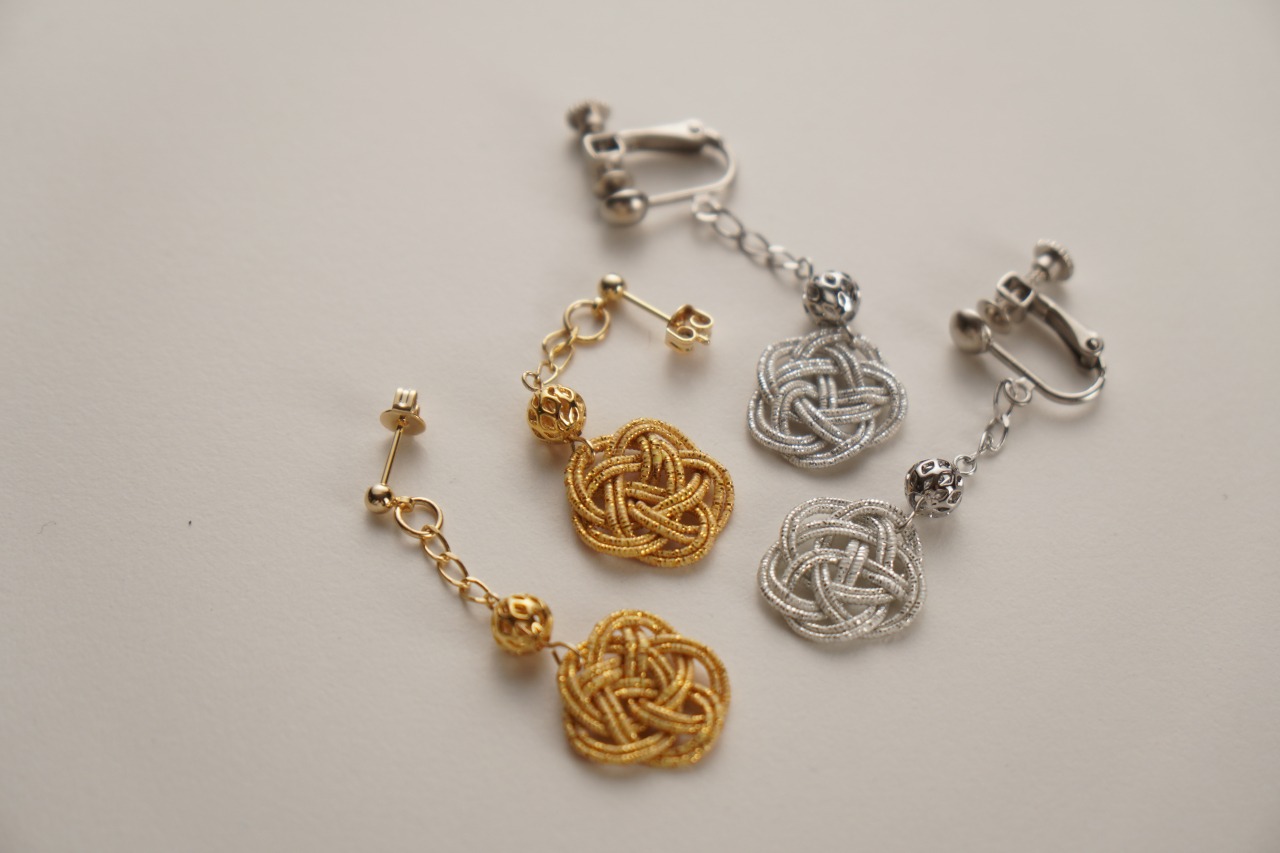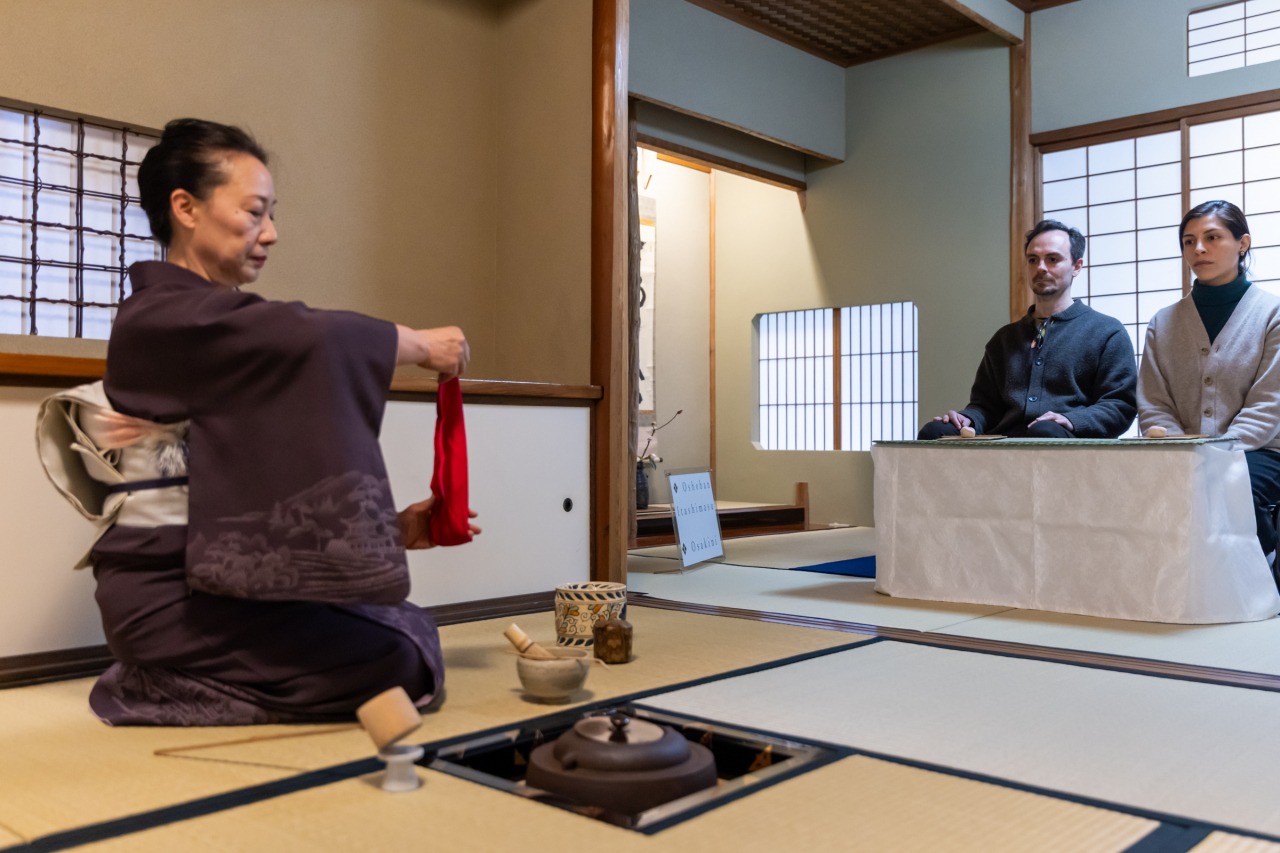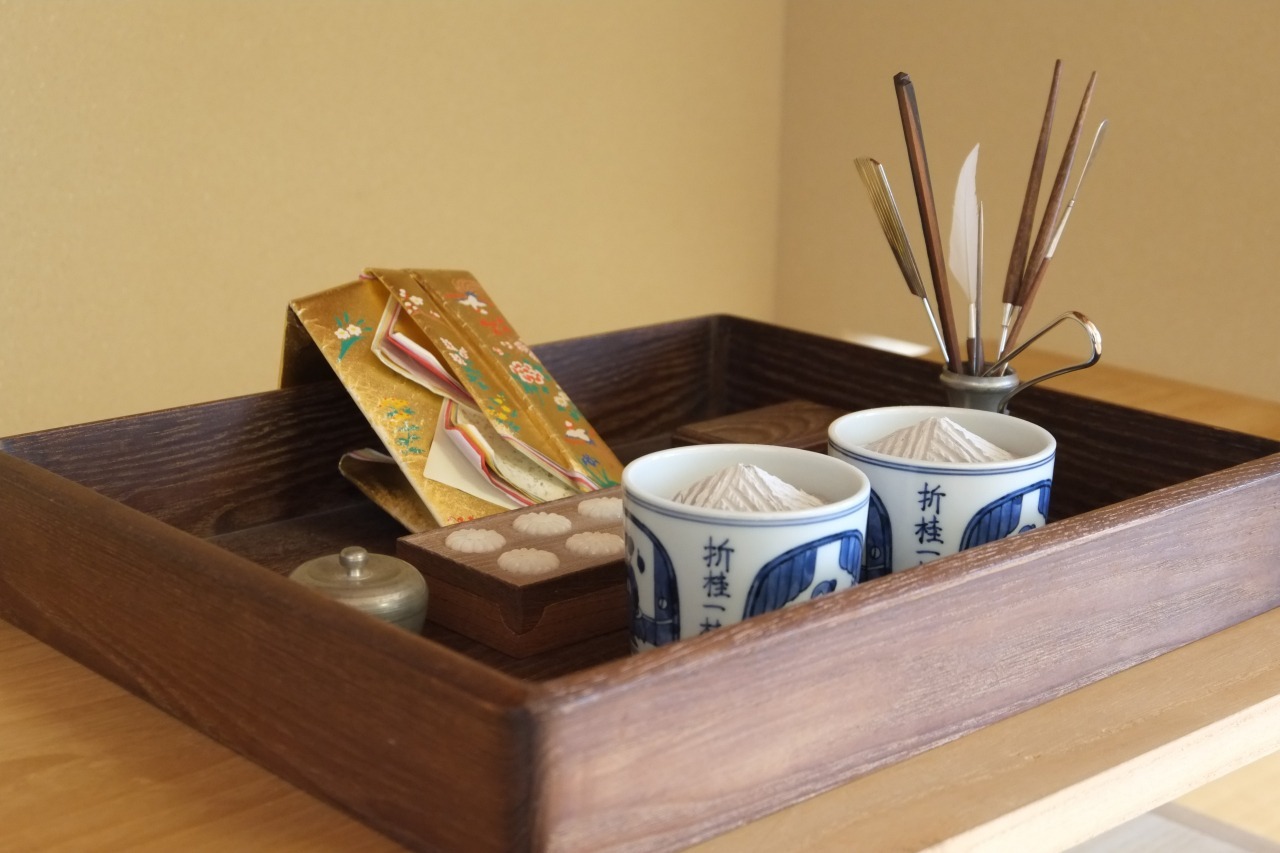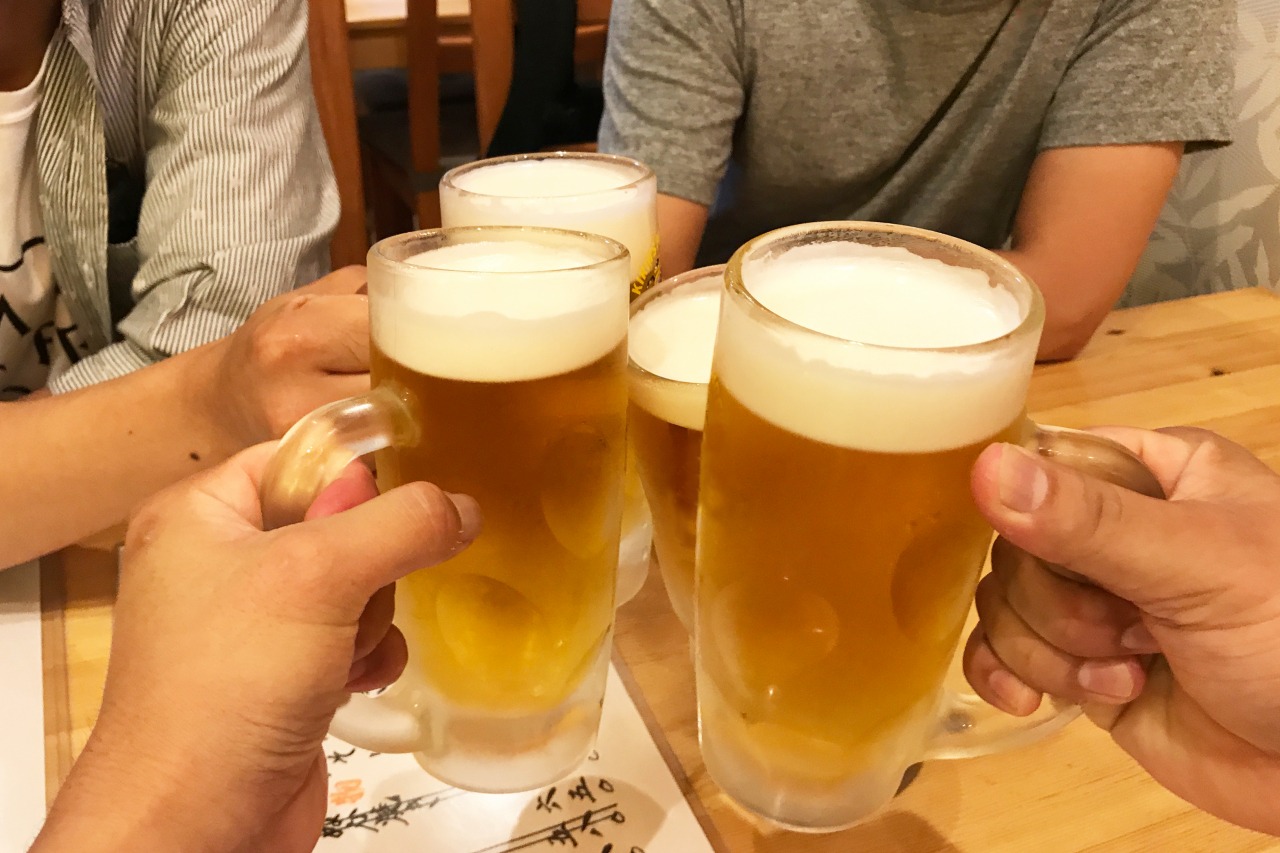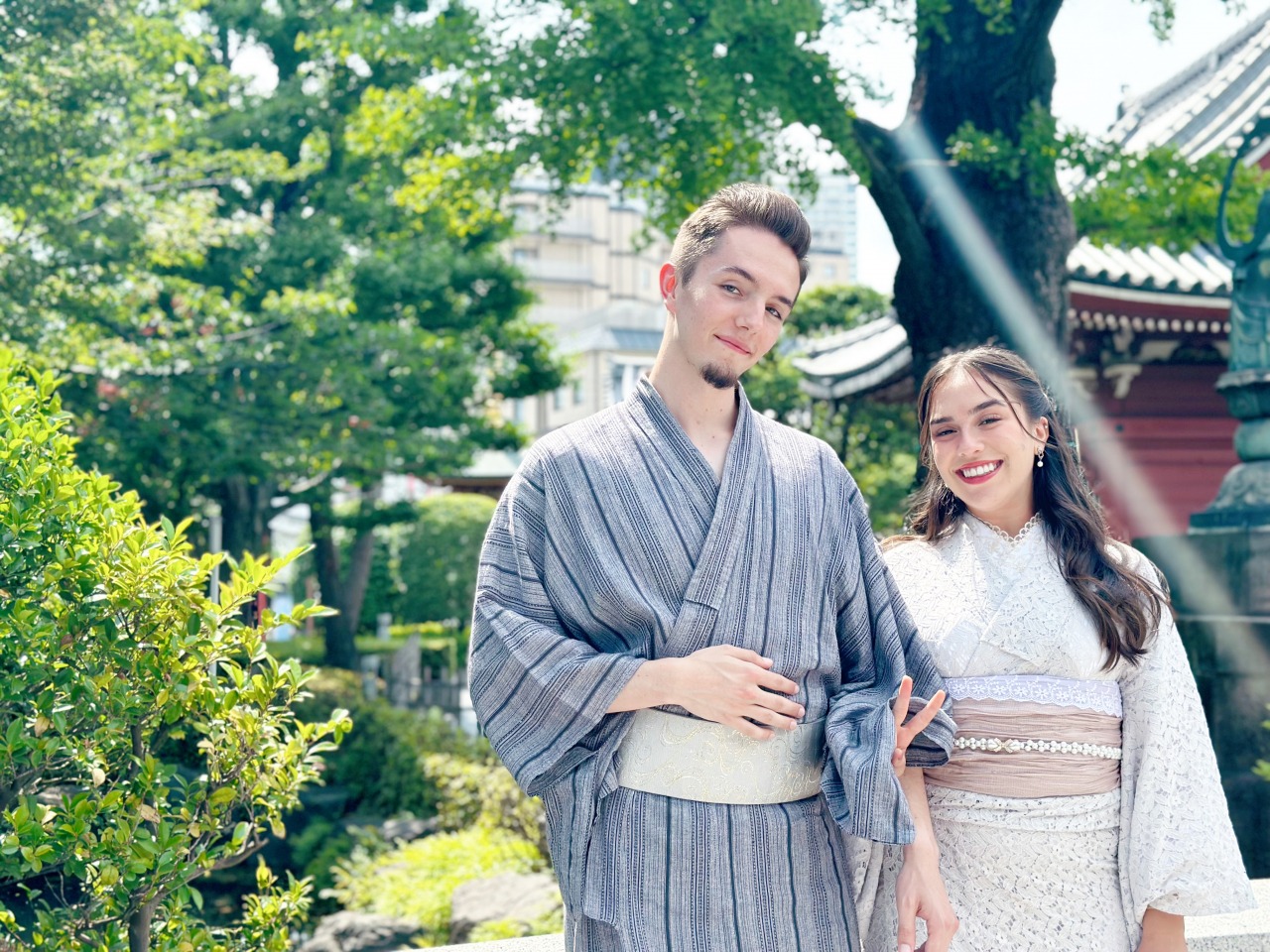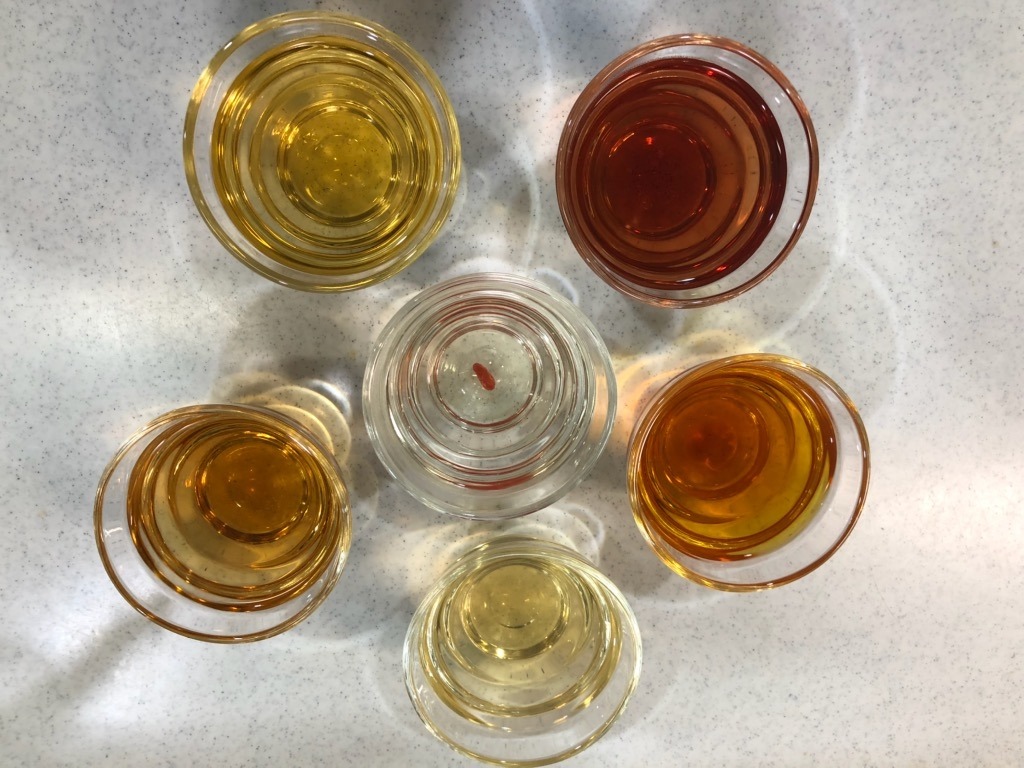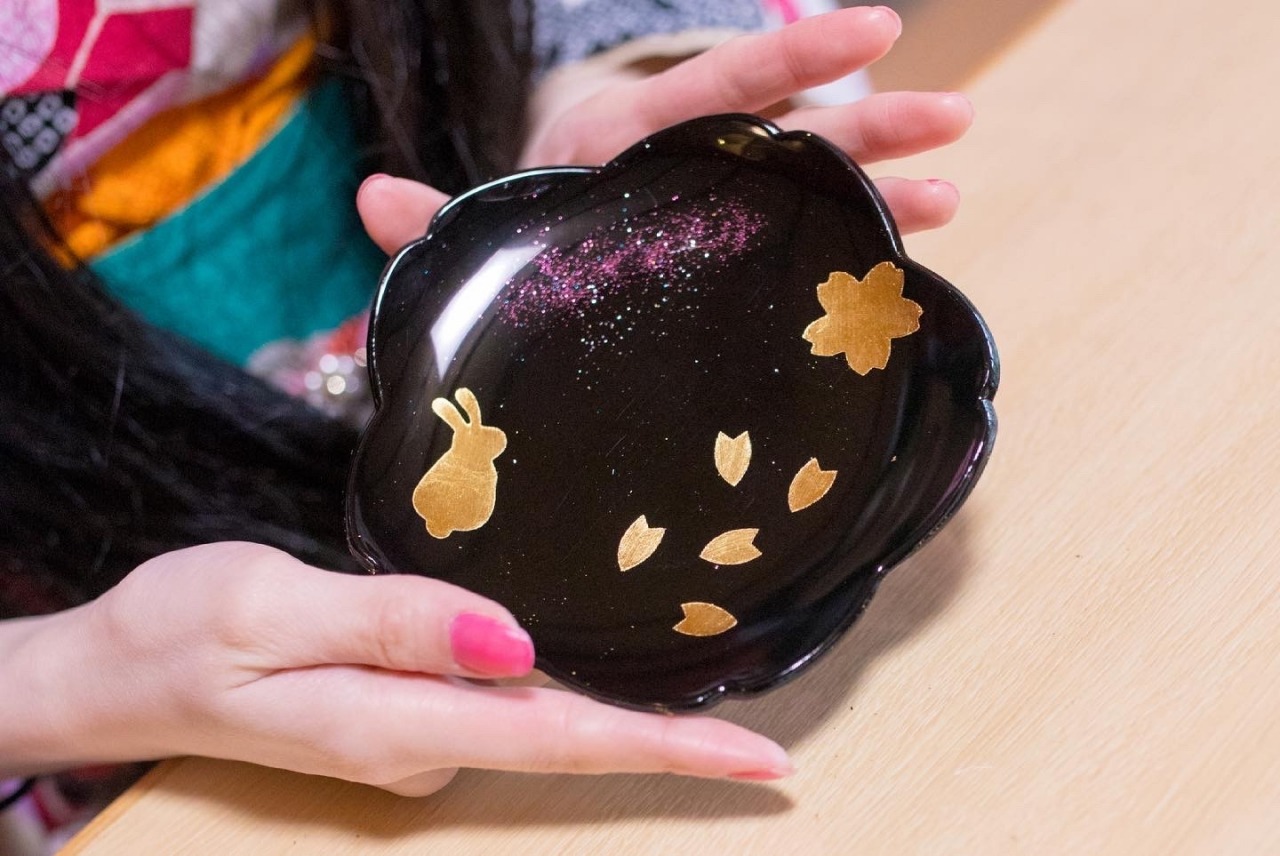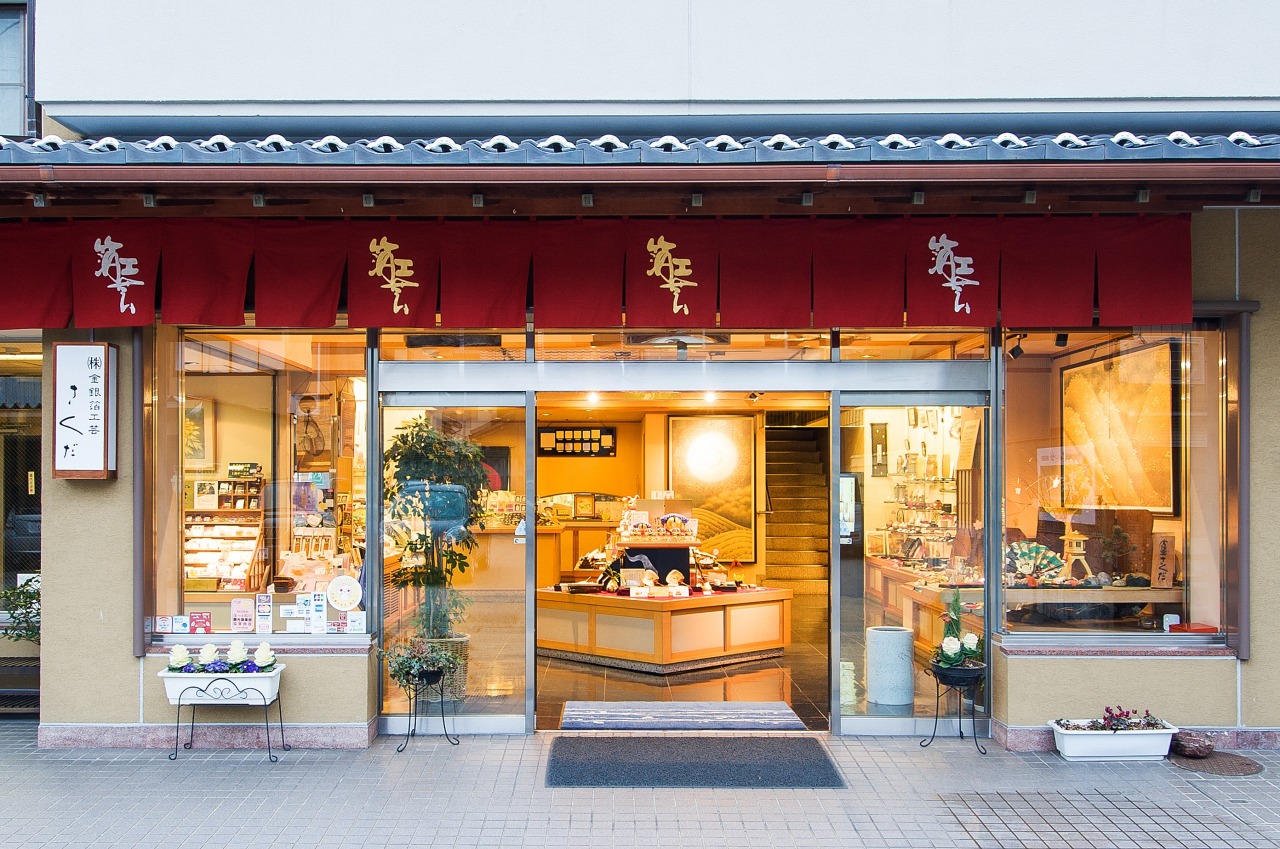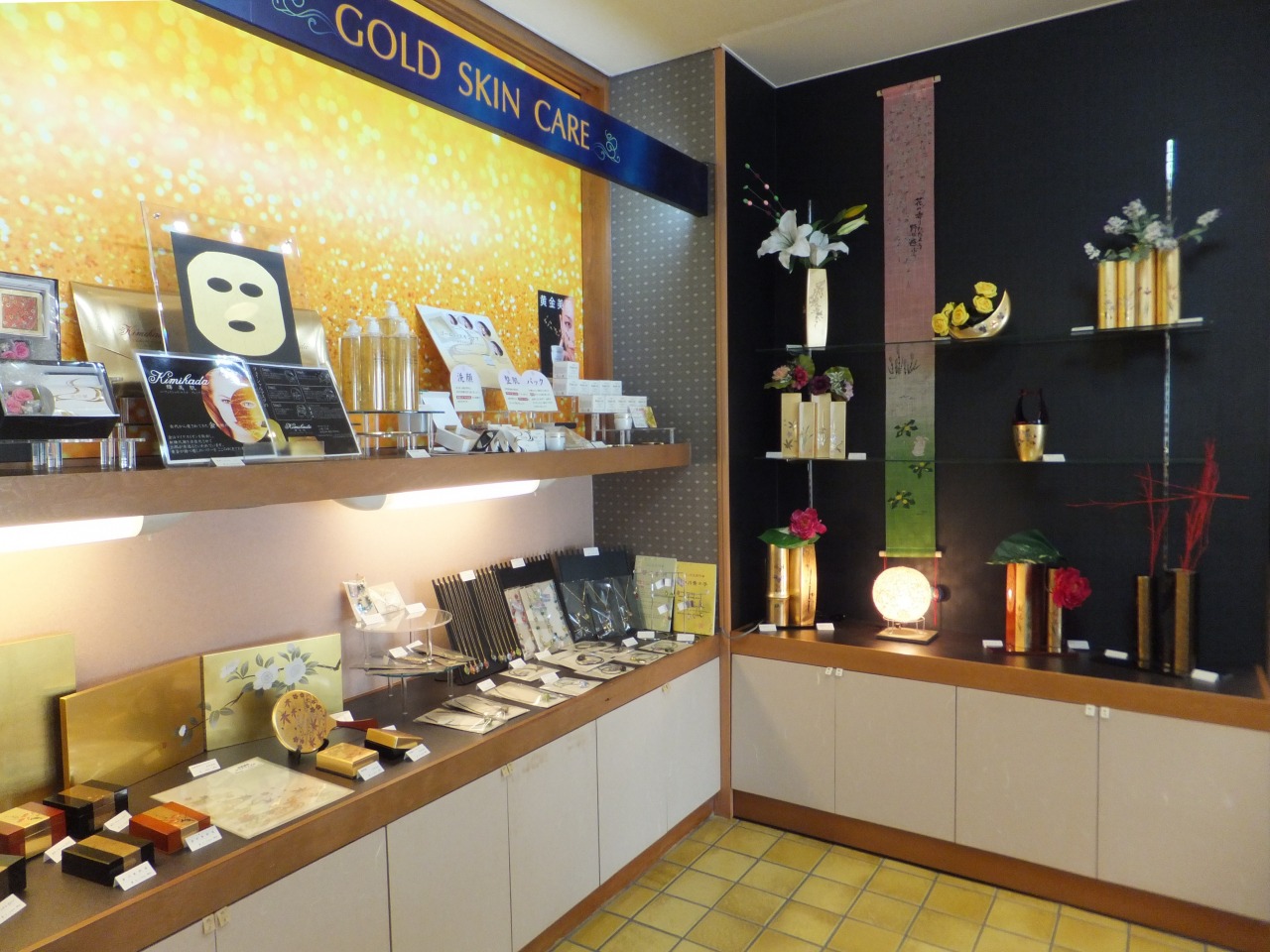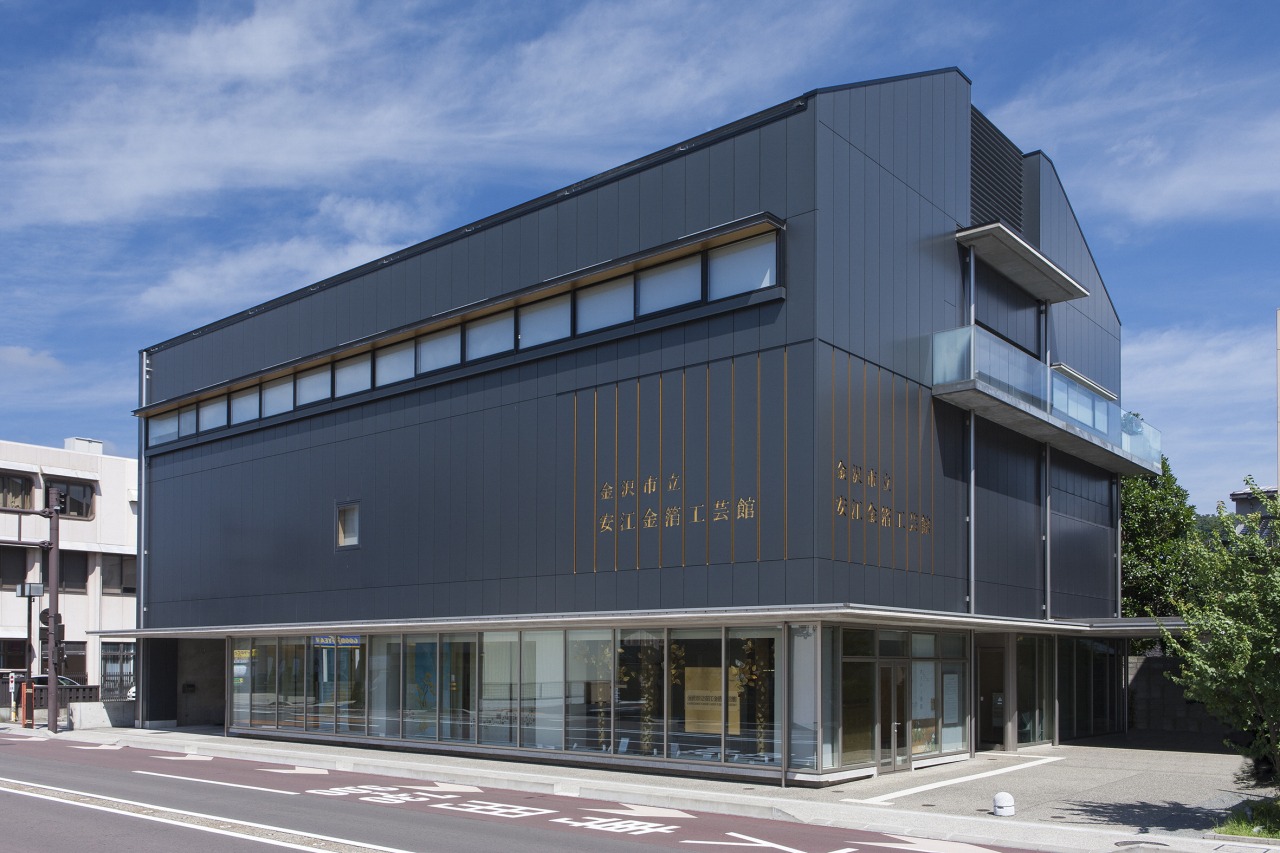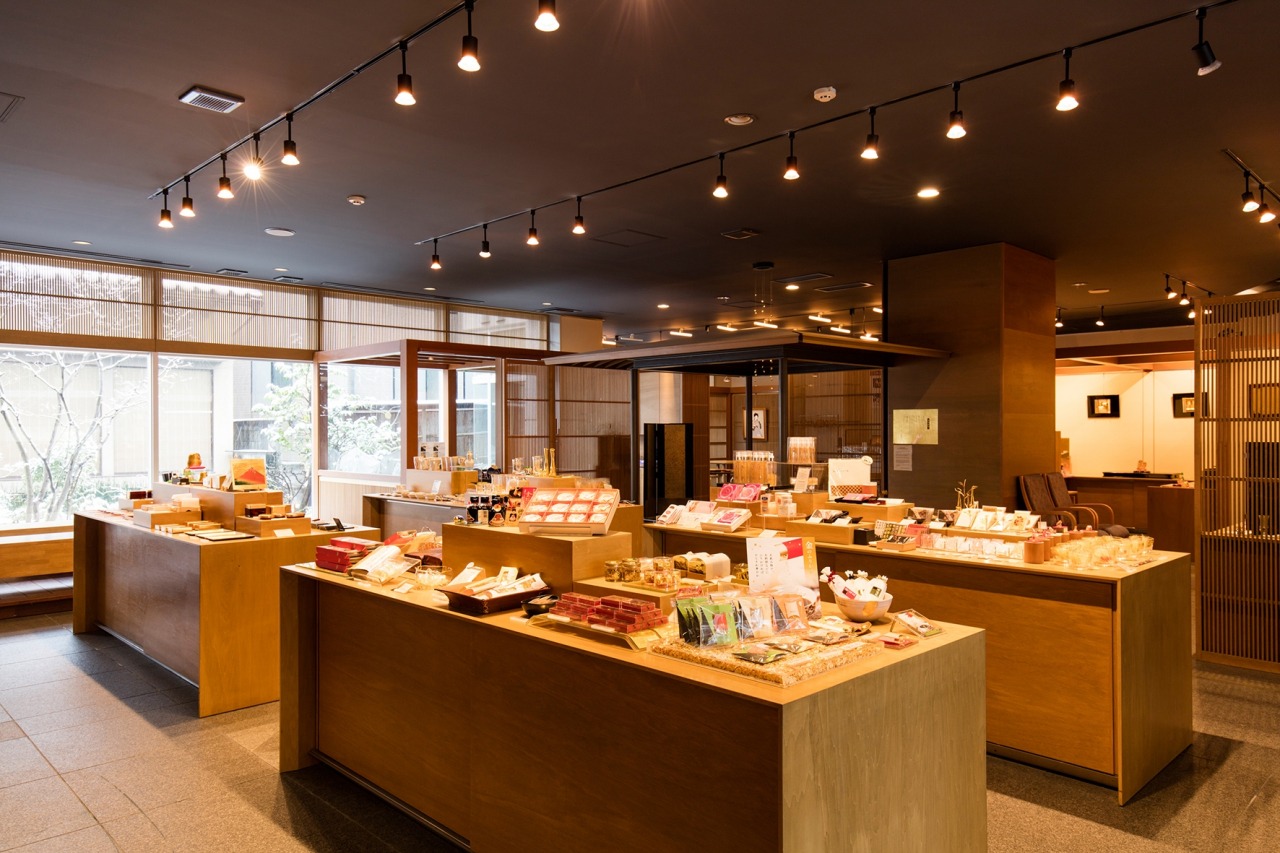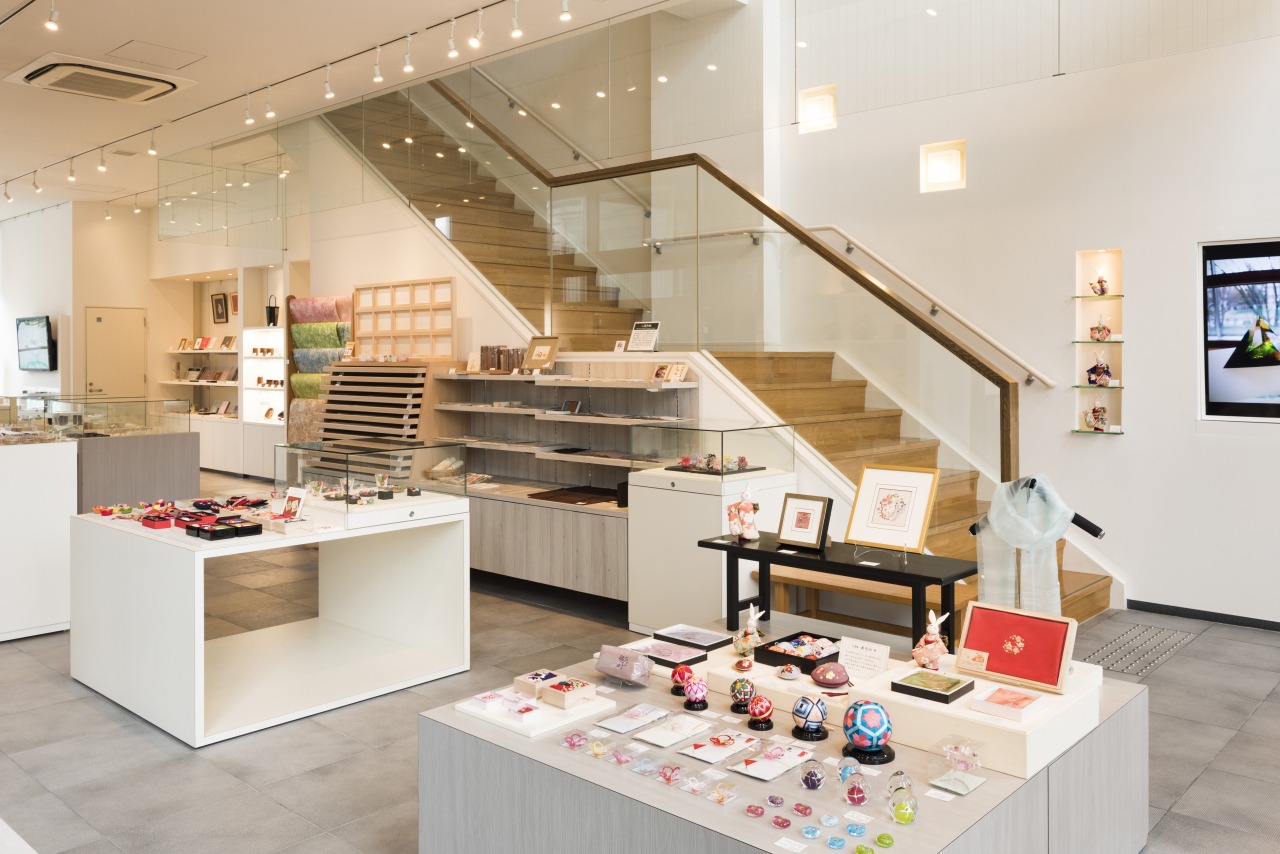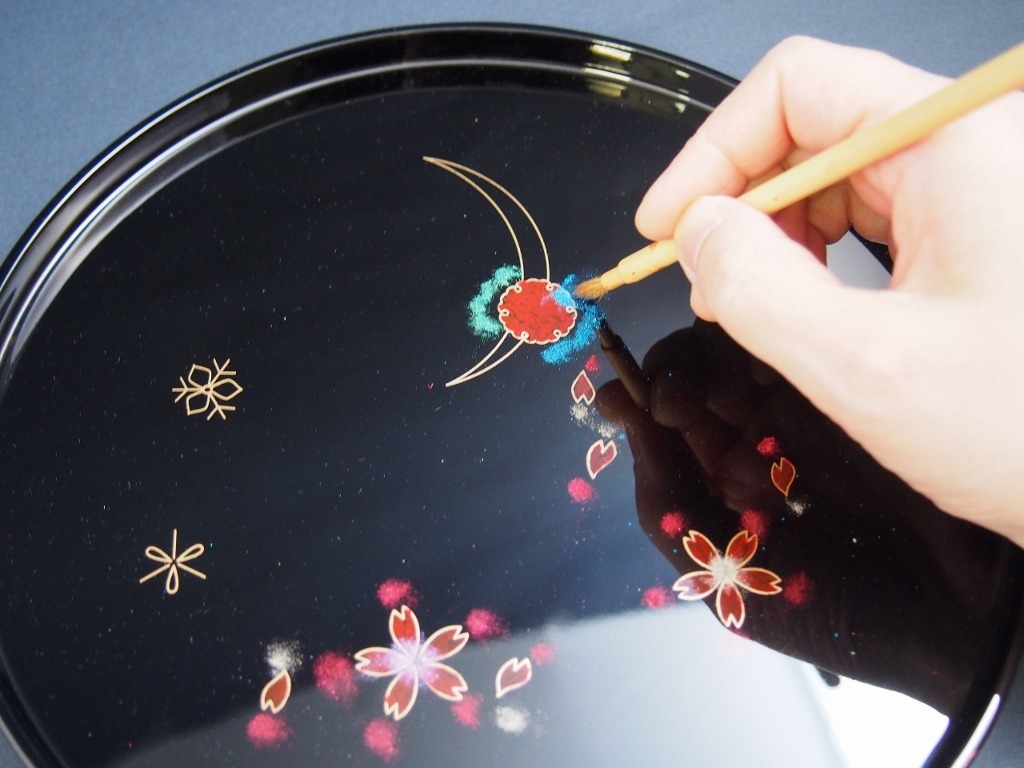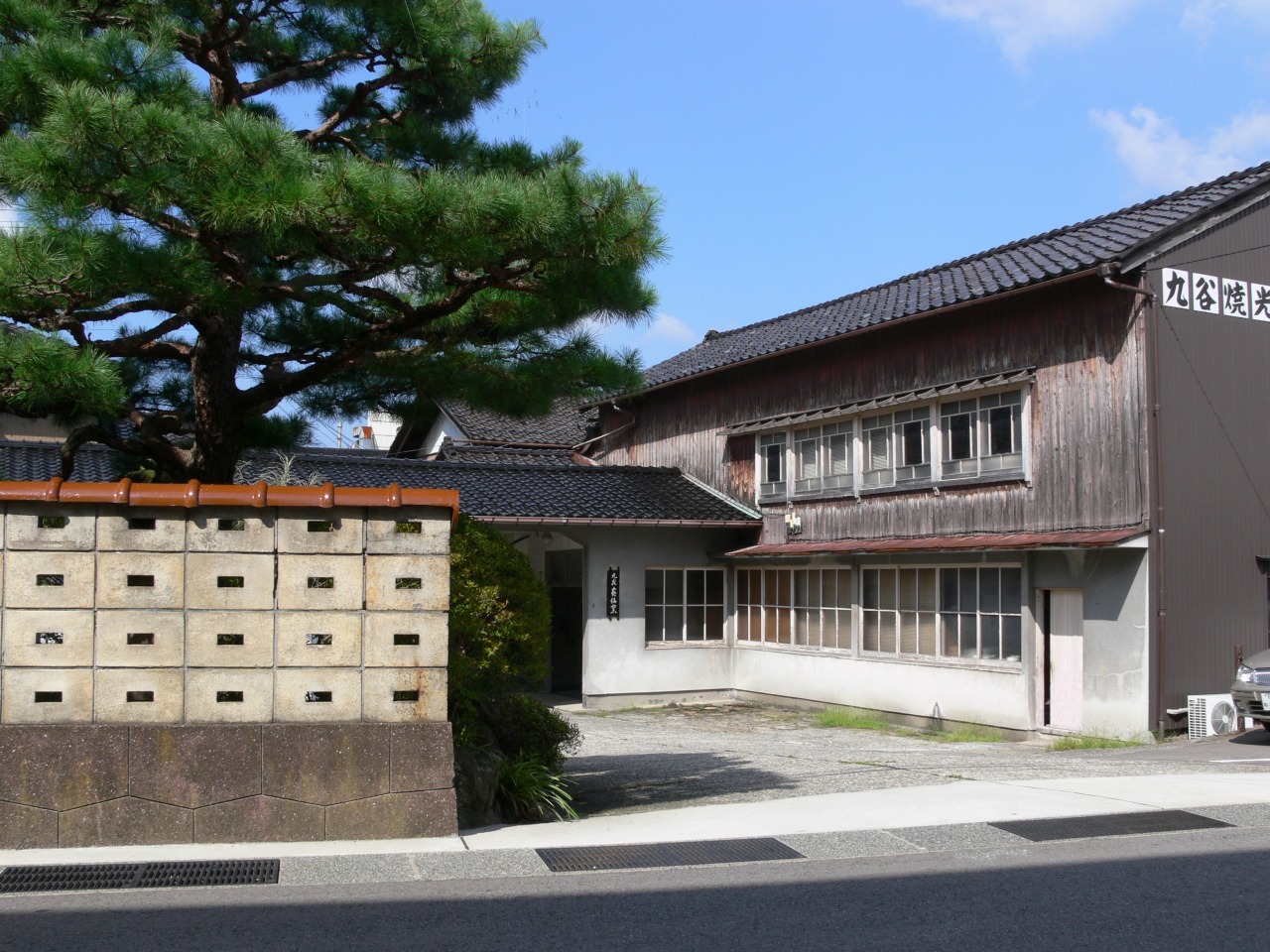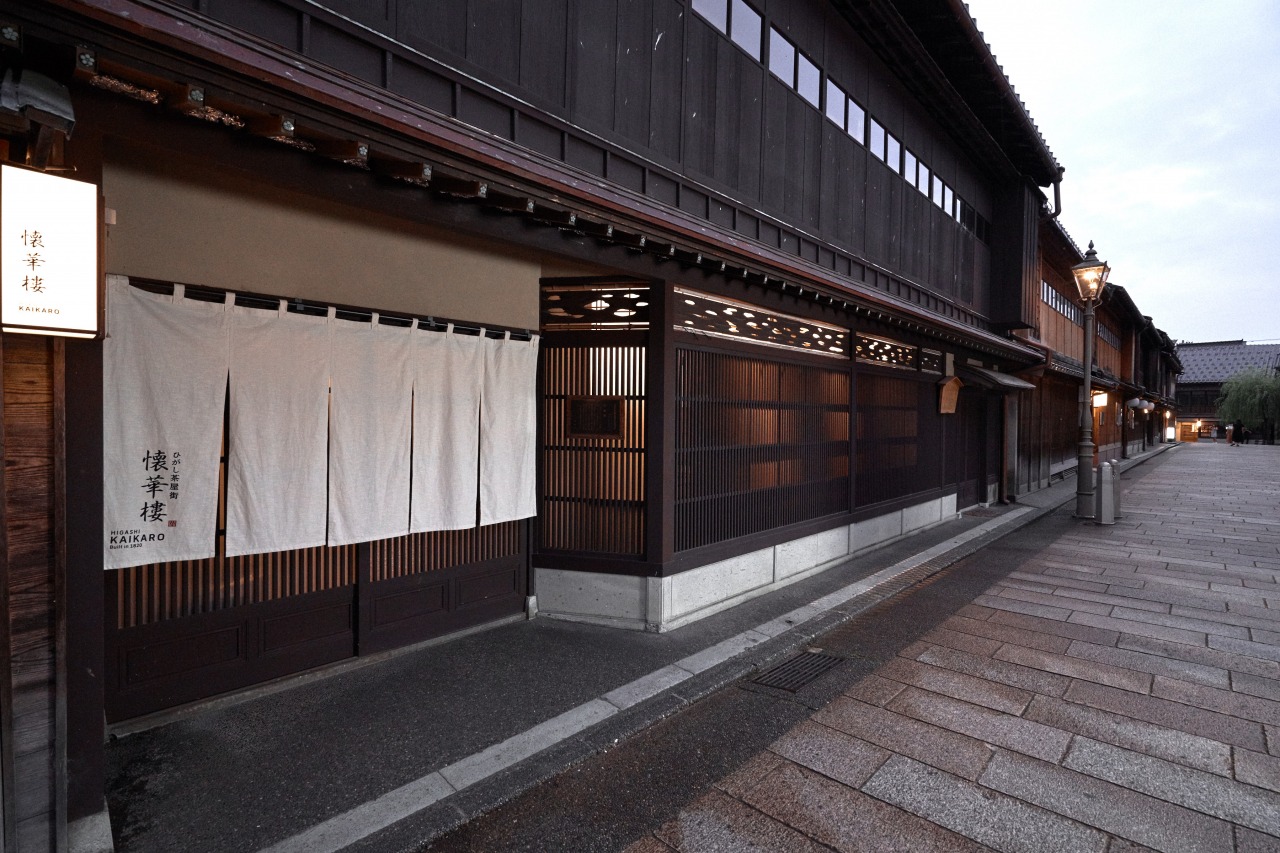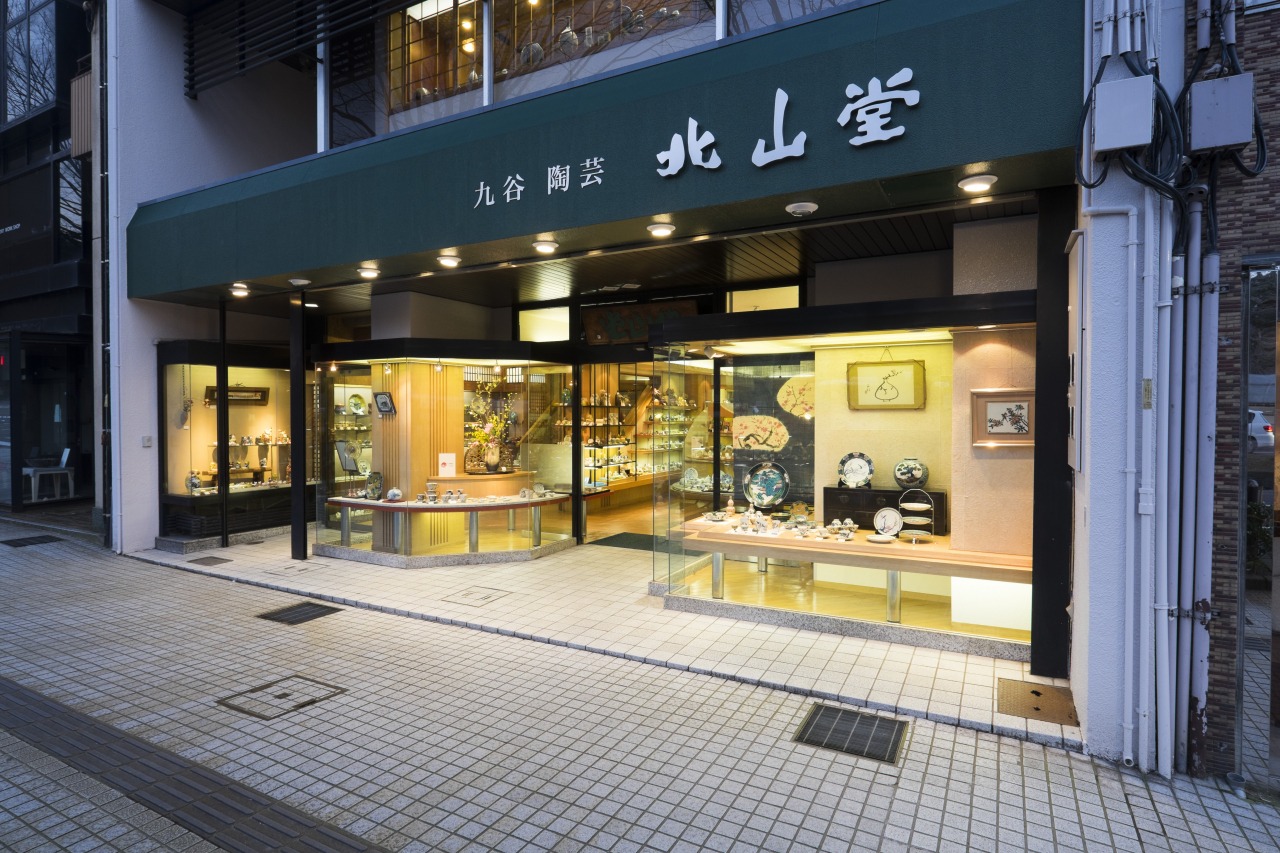Gold leaf jewelry Gold-Knot
Gold-Knot / Gold Leaf Jewelry Turns Kanazawa Craft into Fashion Statement
Necklaces, earrings, and brooches covered with gold leaf shine with a delicate luster inside a Kanazawa jewelry shop. Gold-Knot, an accessory brand from the city, offers unique gold leaf pieces that combine Kanazawa’s traditional gold leaf crafting with local silk thread. When you hold the pieces in your hand, they are so light as to almost be weightless. They rest glamorously on your clothes, which neither sag nor lose shape under the adornments. And the price tags are reasonable as well. Gold leaf in Japan is almost all produced in Kanazawa. However, the industry is suffering from shrinking demand and unprecedentedly high gold prices. Gold leaf jewelry is a new art that has made waves in this world of tradition, and it is drawing attention abroad as well.
The production process begins with hand knitting lace designed by Satomi Kiwada and Shinji Kamoya, using local silk thread from Komatsu, Ishikawa Prefecture. Then, Kanazawa gold leaves as thin as 1/10,000th of a millimeter are applied to the lace. The gold leaf is so fine that the slightest breeze can lift it and carry it away. The company’s patented technique is used to fix the gold leaf to even the smallest details of the weave. The excess gold leaf is then brushed off, and the lace is assembled into necklaces, earrings and other accessories.
Gold-Knot, which promotes “wearing traditional crafts in daily life,” stands out for how it combines gold leaf and silk thread and Japanese and European techniques.
Gold leaf has a long history in Japan. The Italian traveler Marco Polo introduced Japan as “Zipangu, the land of gold” in his travelogue “The Travels of Marco Polo,” which recounts his tour of Asia in the latter half of the 13th century. Gold leaf was used in the Konjikido hall of Chuson-ji temple in Hiraizumi during the Heian period and in Kinkaku-ji temple in Kyoto during the Muromachi period. The Kaga Clan’s gold leaf was struck a little later, around the end of the 16th century. According to the annals of the Kanazawa clan, gold leaf was first mentioned in 1593, just before the start of the EDO period. Kanazawa's favorable climate allowed gold production to flourish.
New sales channels are also being opened in the United States.In 2019, sales began at the Museum of Arts and Design in New York City. On the U.S. West Coast, they also delivered products to the J. Paul Getty Museum in Los Angeles and the Portland Japanese Garden, which was recently expanded by architect Kengo Kuma. Gold-Knot embrace a dream of spreading Kanazawa’s traditions to the world in a new form. And now this dream of theirs is winging to new heights.
Information
- Address
- 〒920-0919 5-6 Minami-cho, Kanazawa City
- Business Hours
- 11:00~18:00
- Regular Holidays
- Wednesdays and the second Sunday of the month.
- By Car
- 5 min by car from Kanazawa Station.
- By Public Transportation
- 7 min by bus from Kanazawa Station.
- Parking
- None
- Parking: Large Vehicle
- None
- Parking: Notes
- Please use the nearby coin-operated parking spaces.
- info@h2o-d.jp
- Official Website
- Gold-Knot Official Site
- Website
- Notes
- The store is located on Hyakumangoku-dori Street and close to the Oyama Shrine Gate.
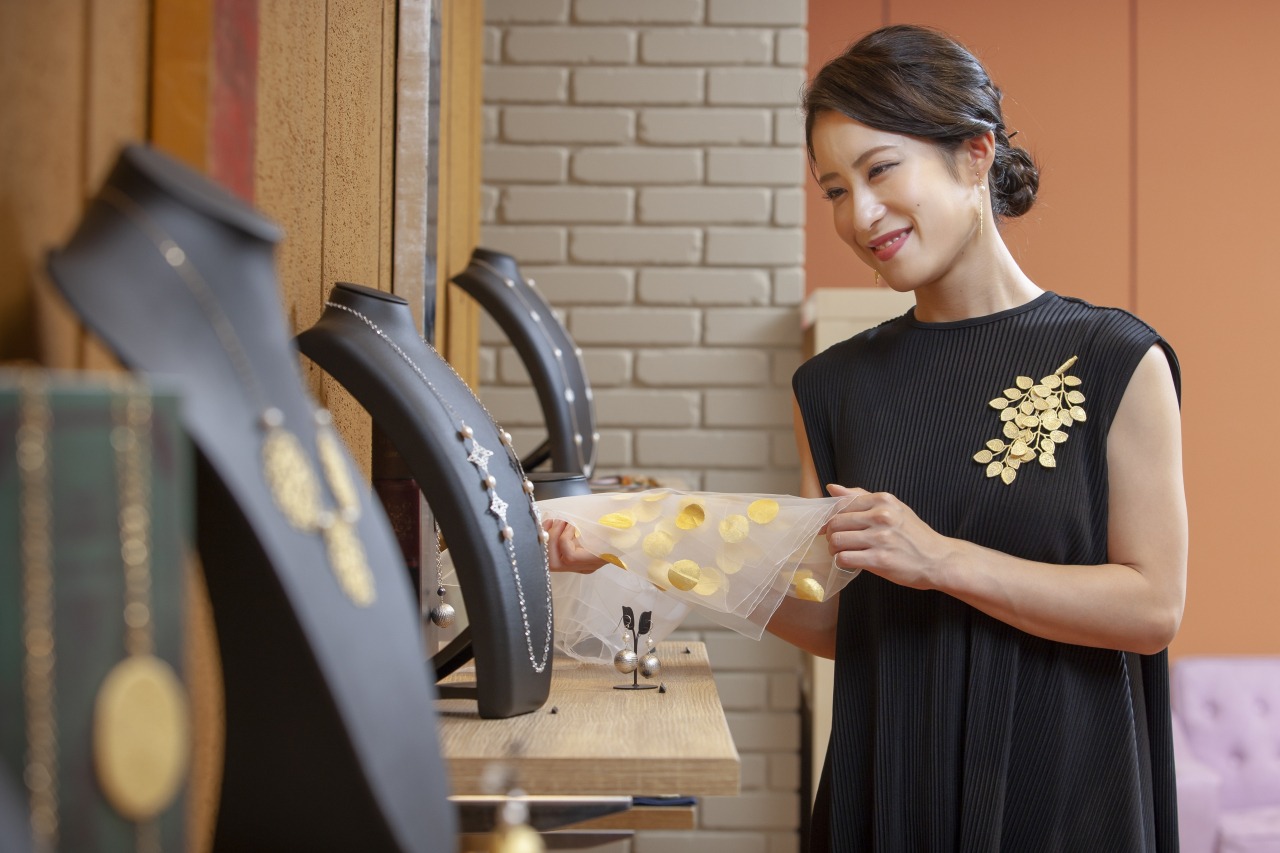
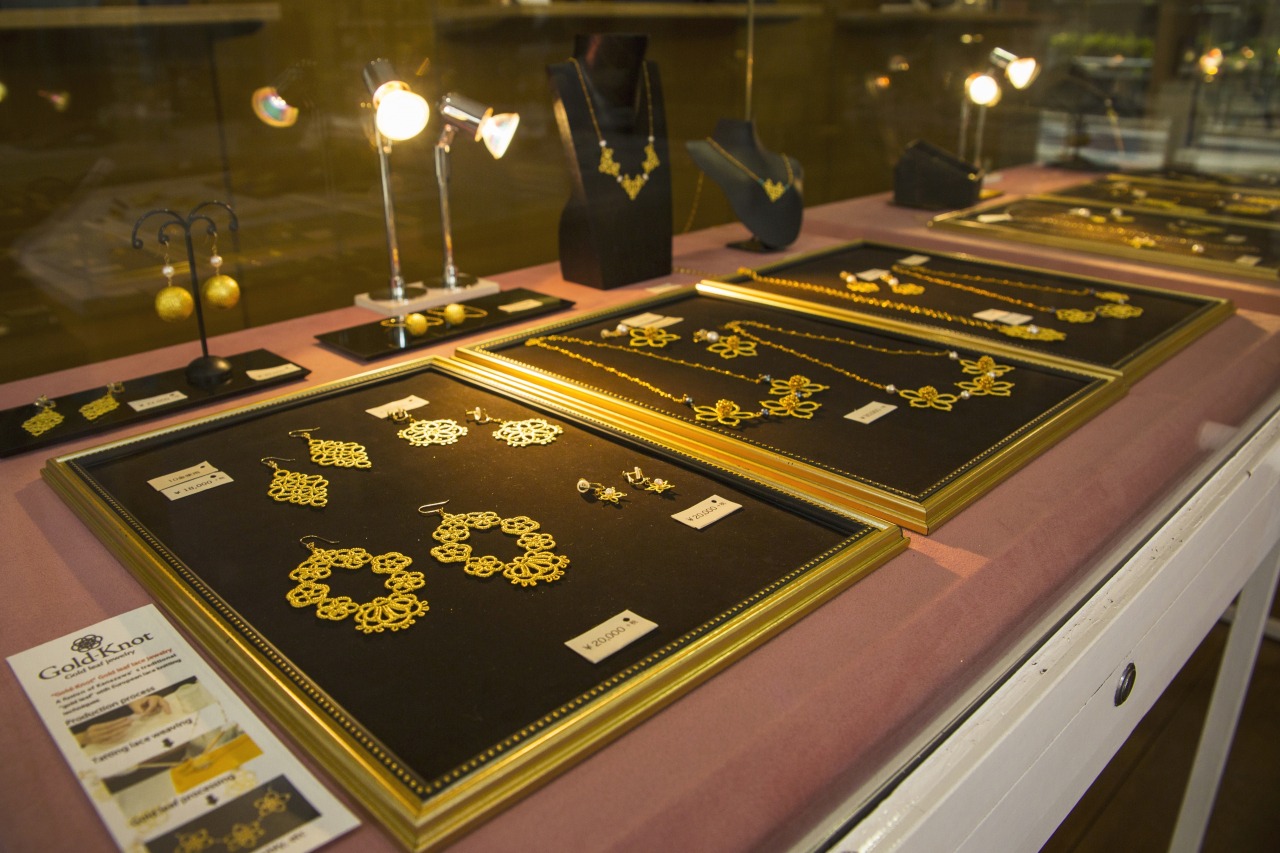
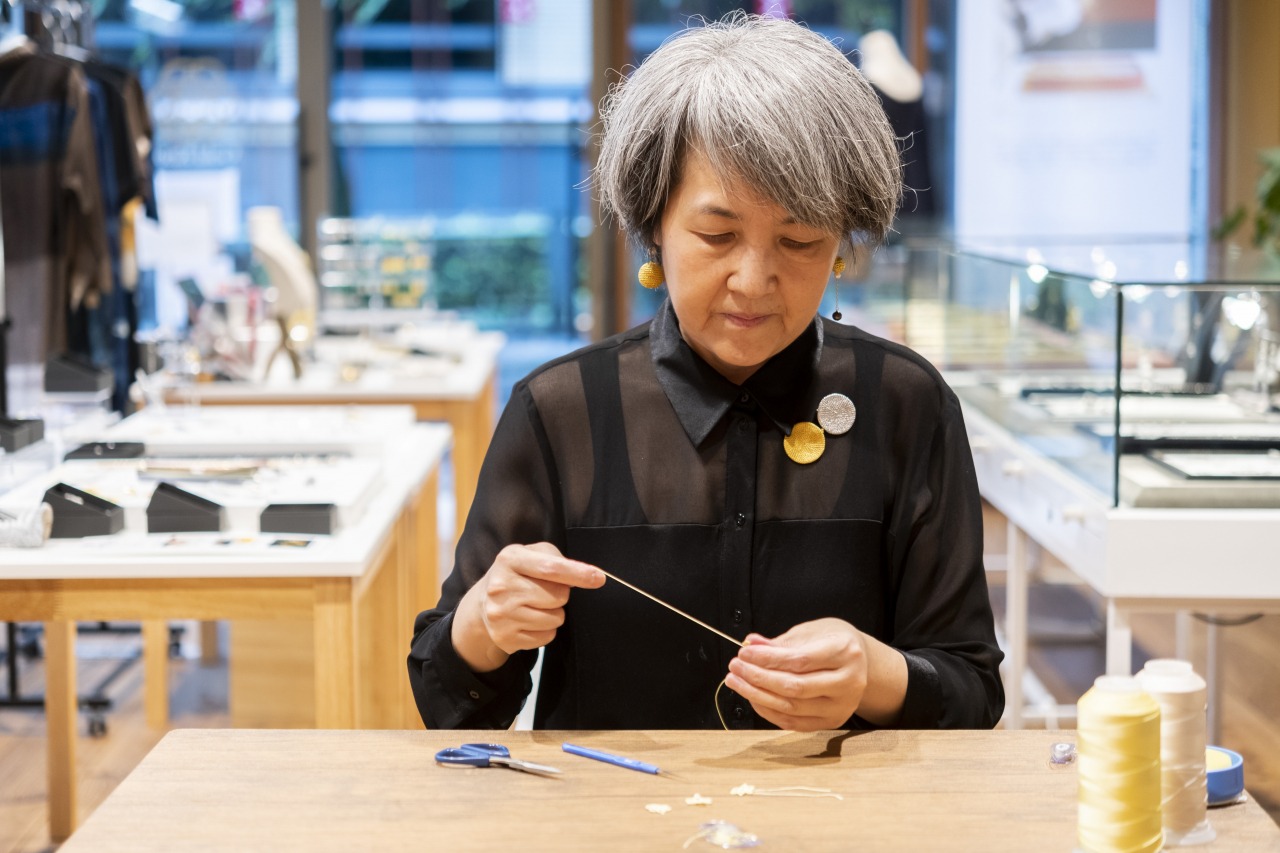
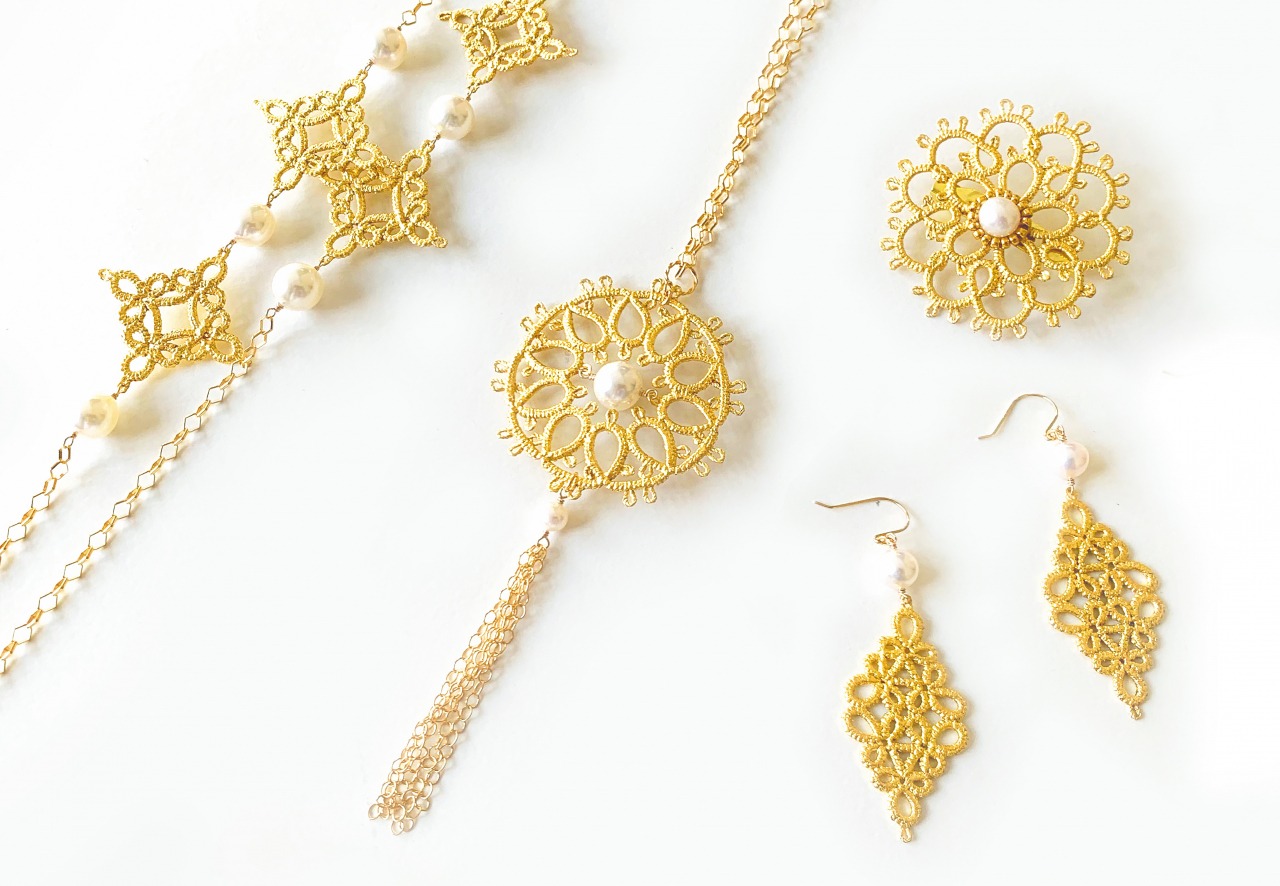
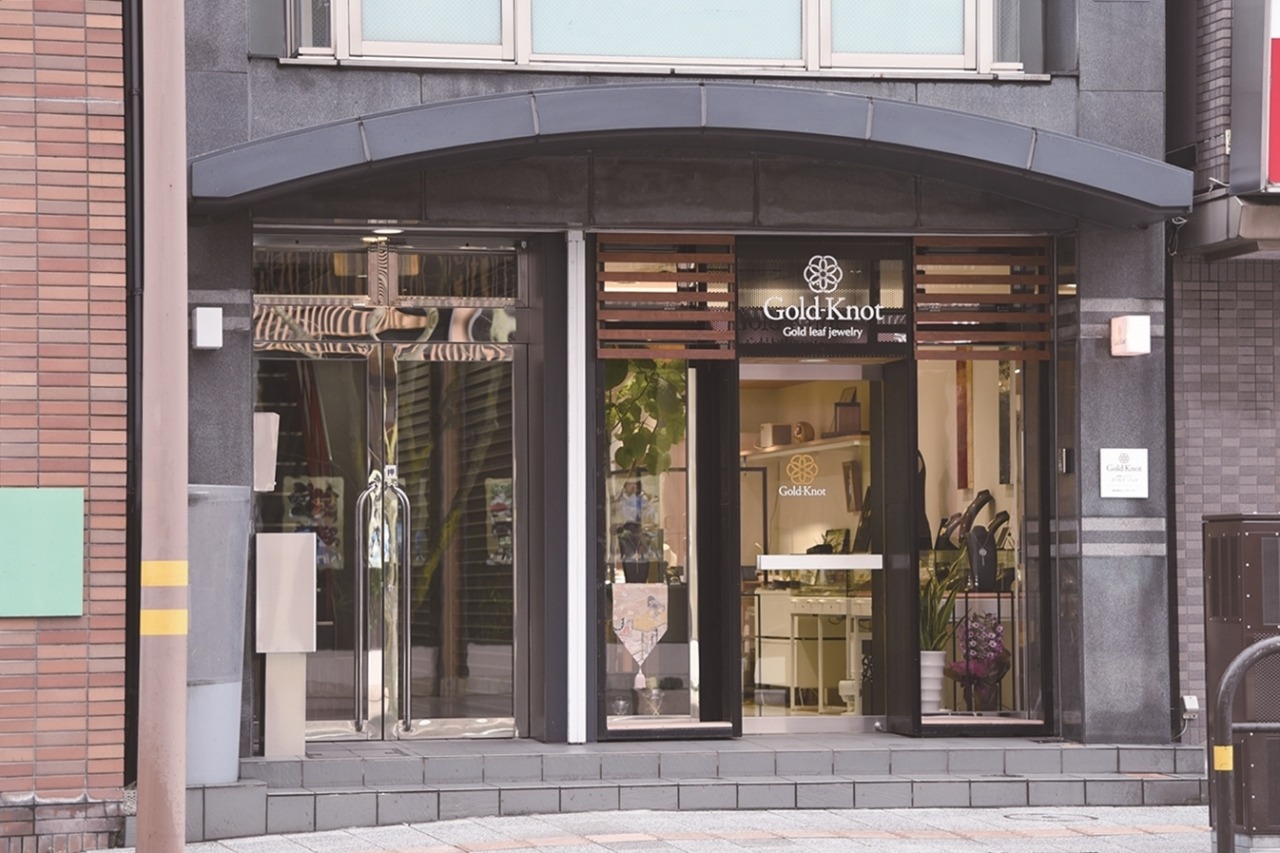
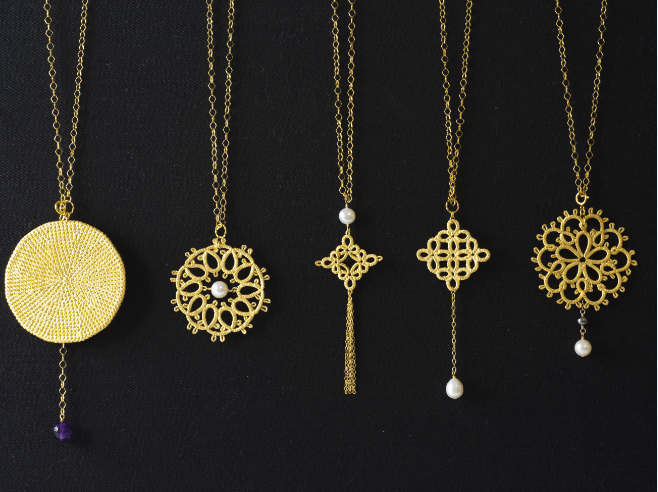
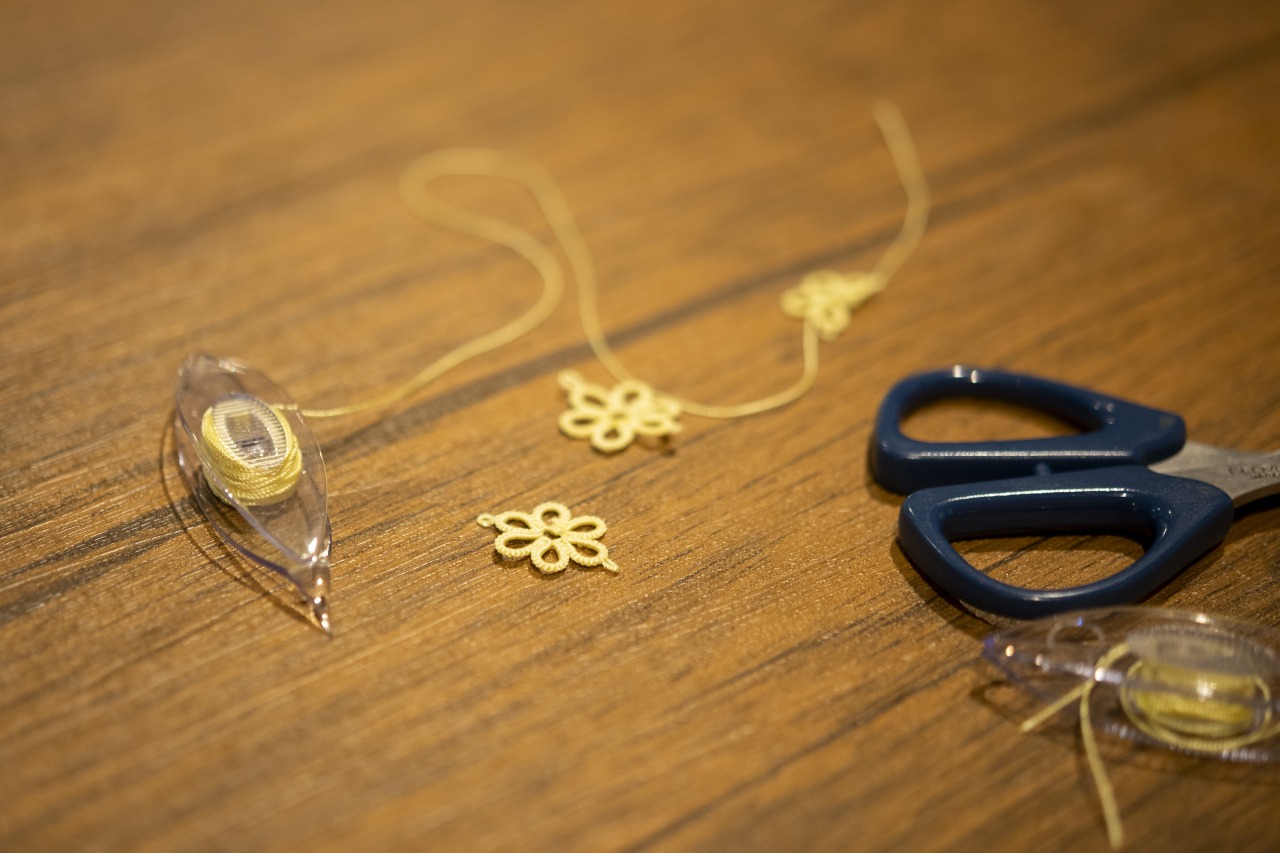
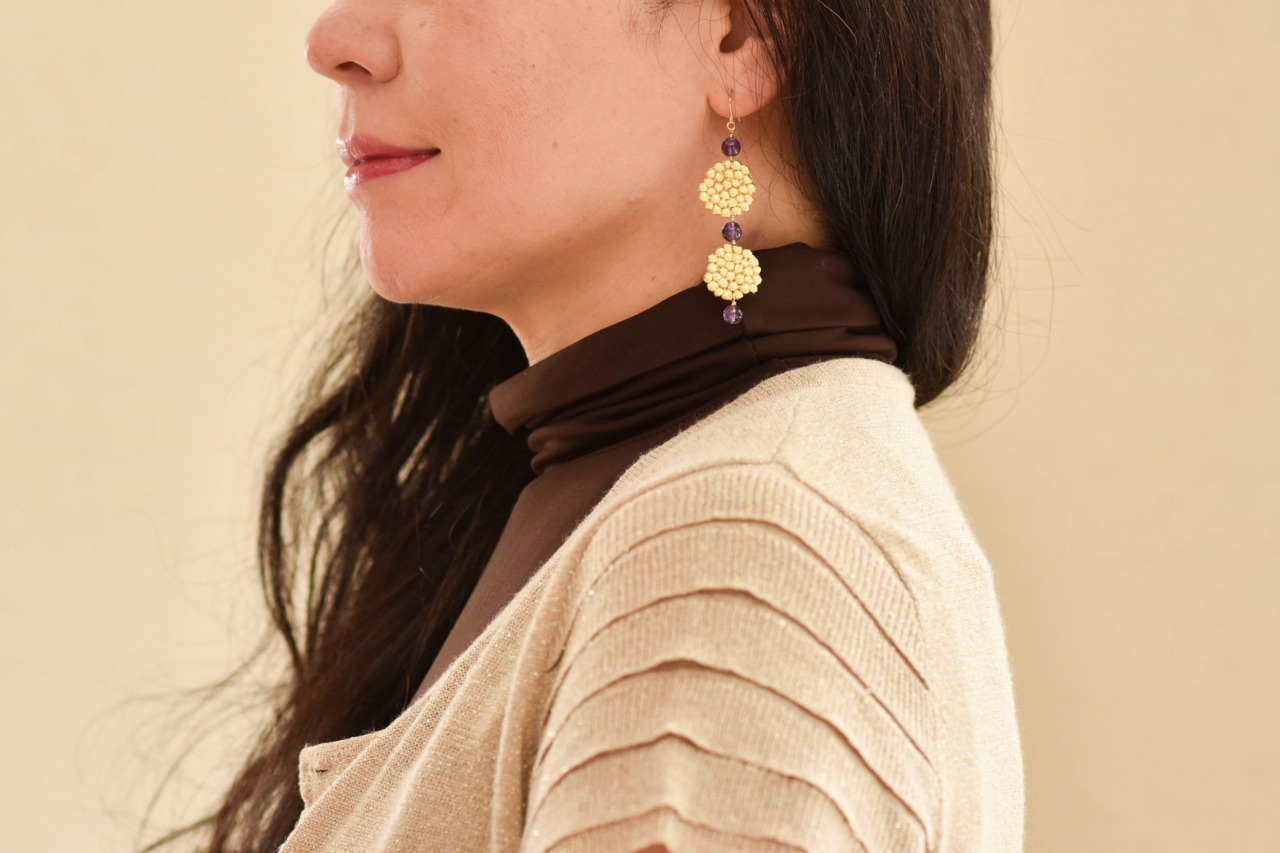
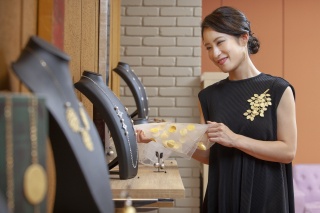
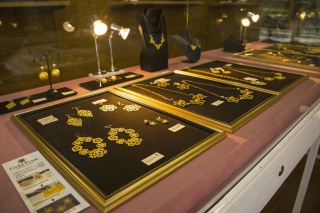
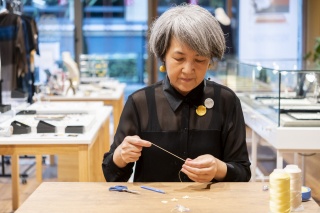
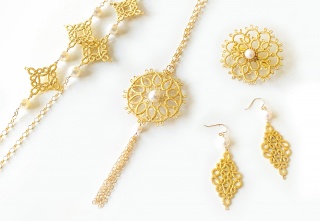
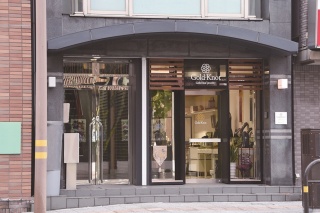
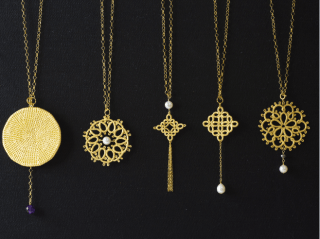
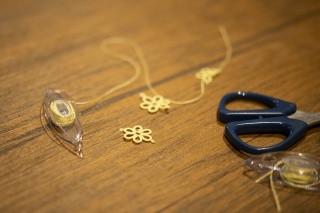
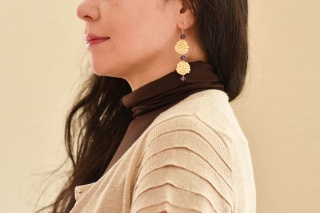
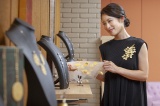
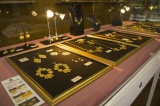
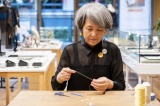
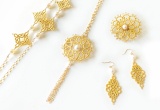
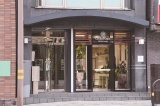
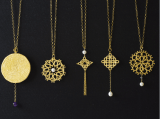
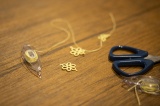
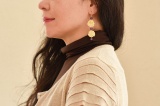
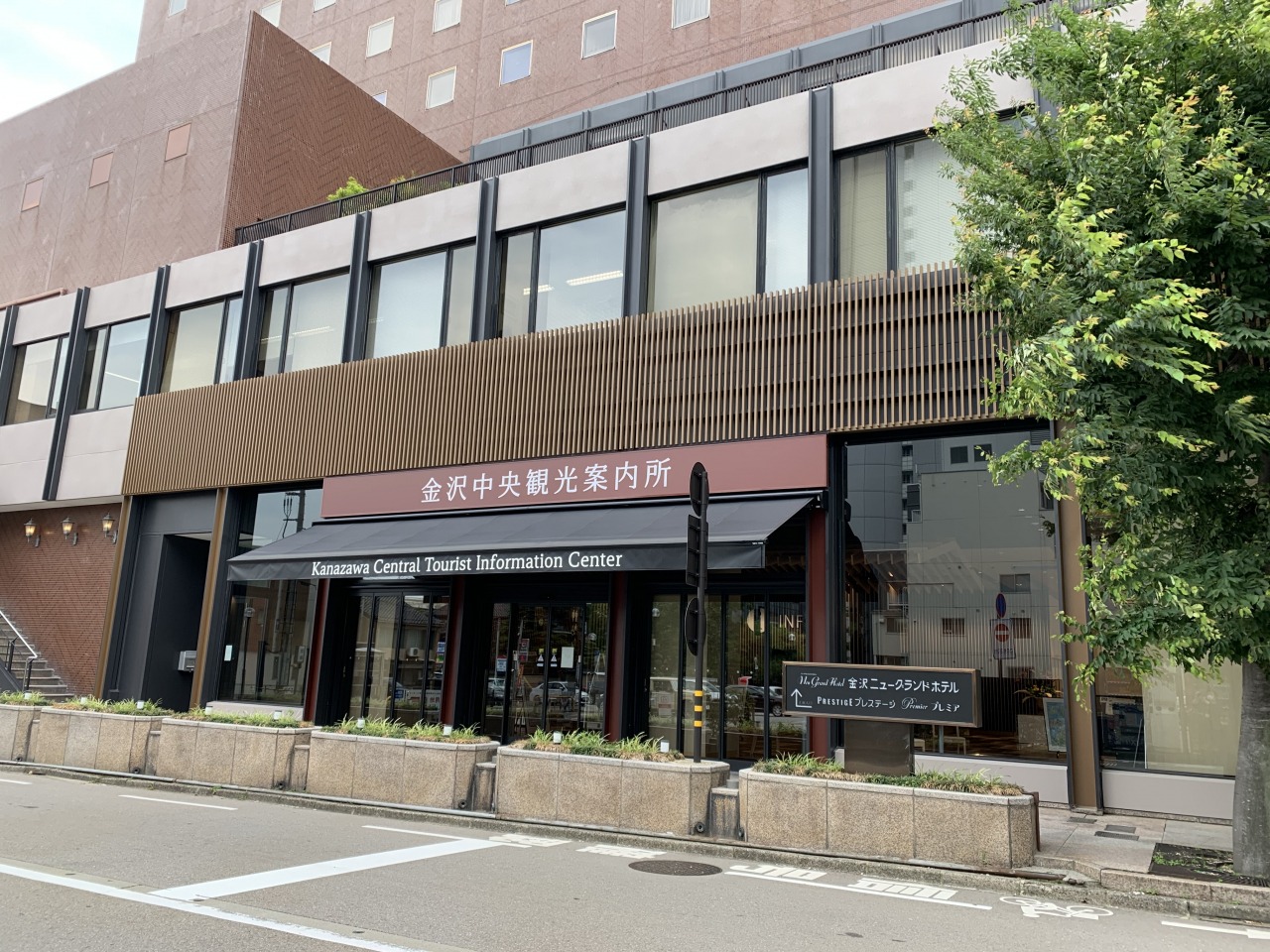
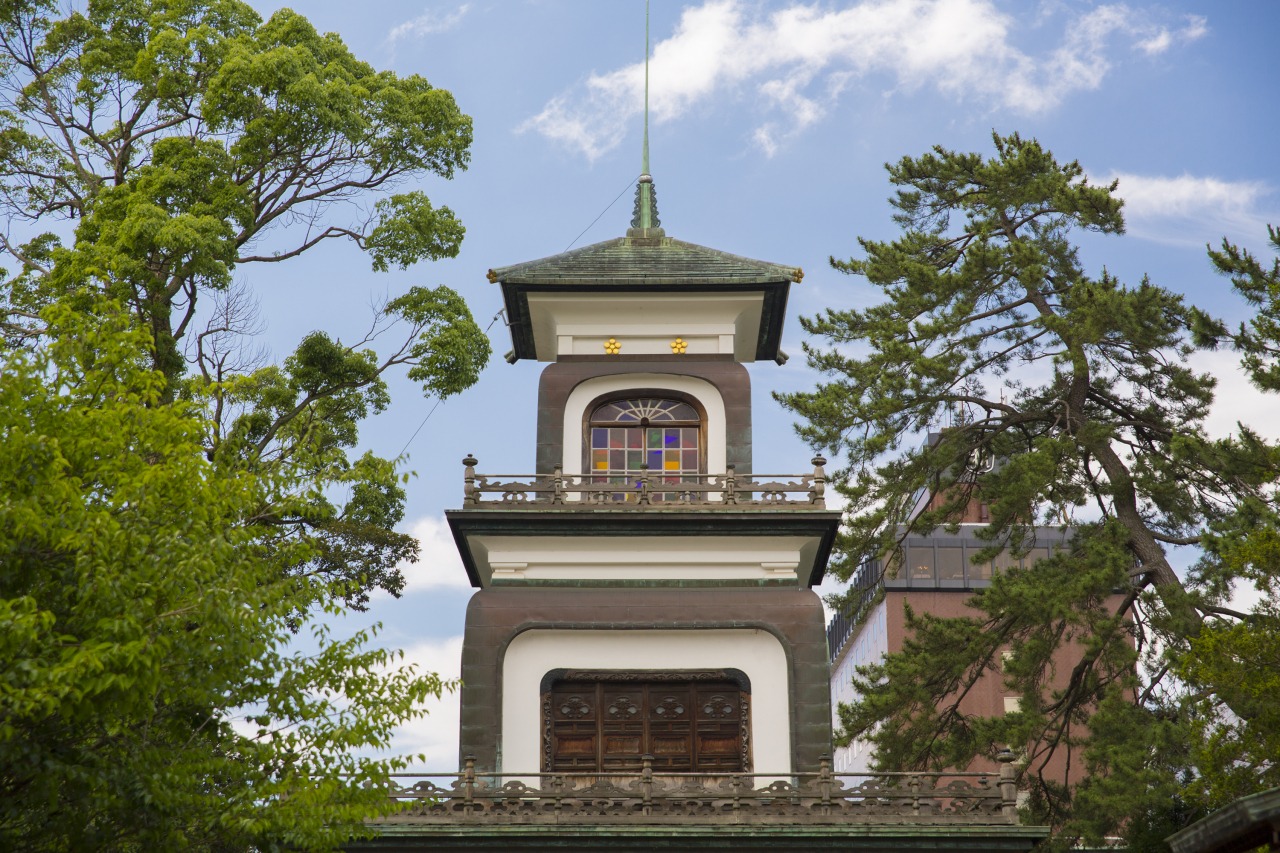
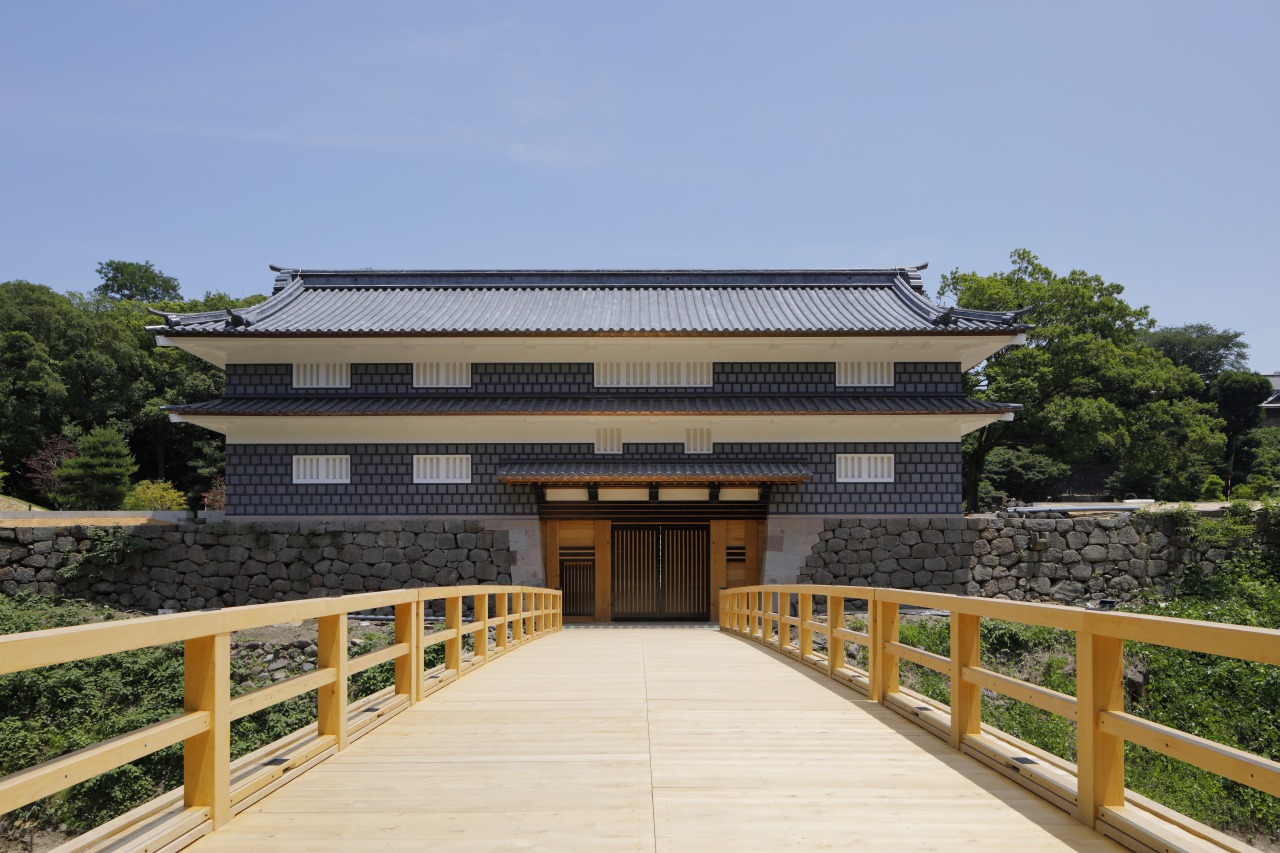
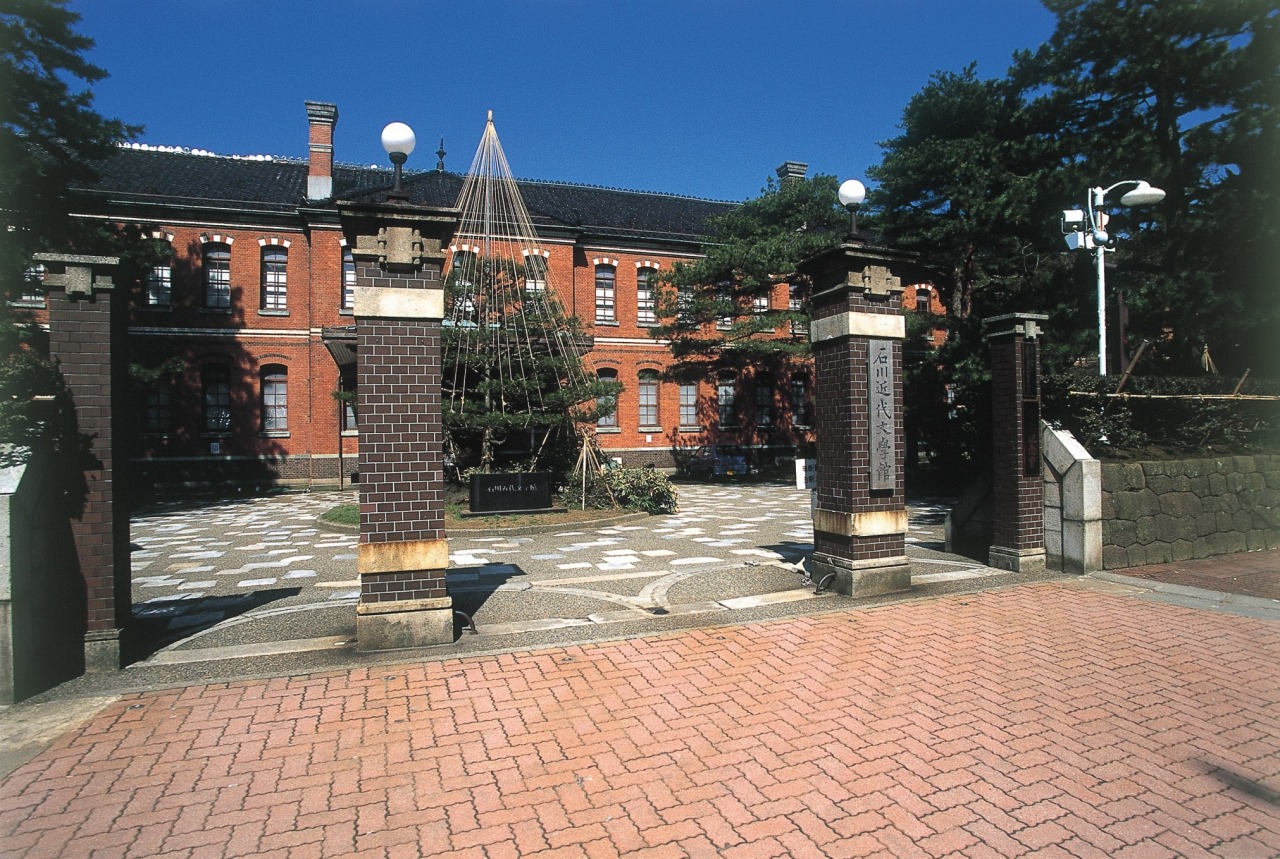
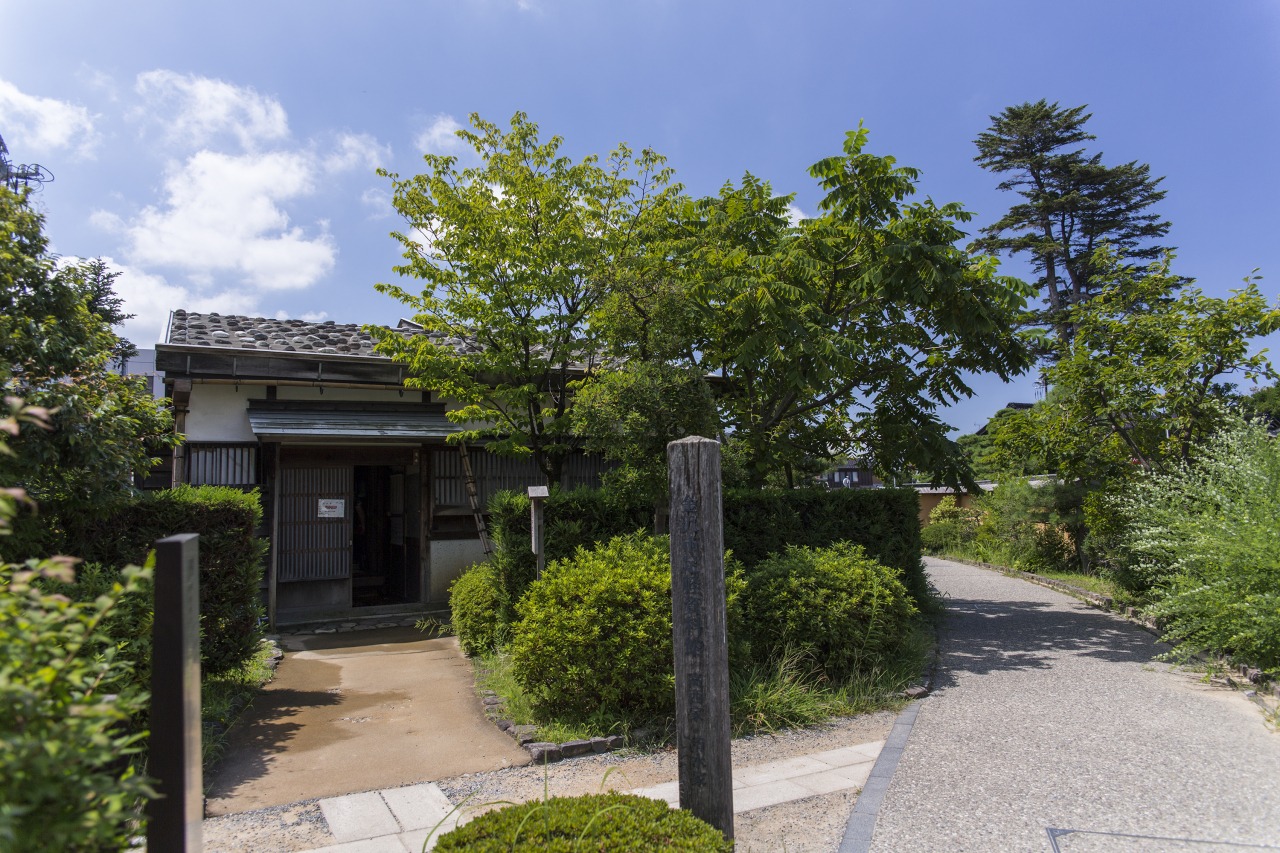
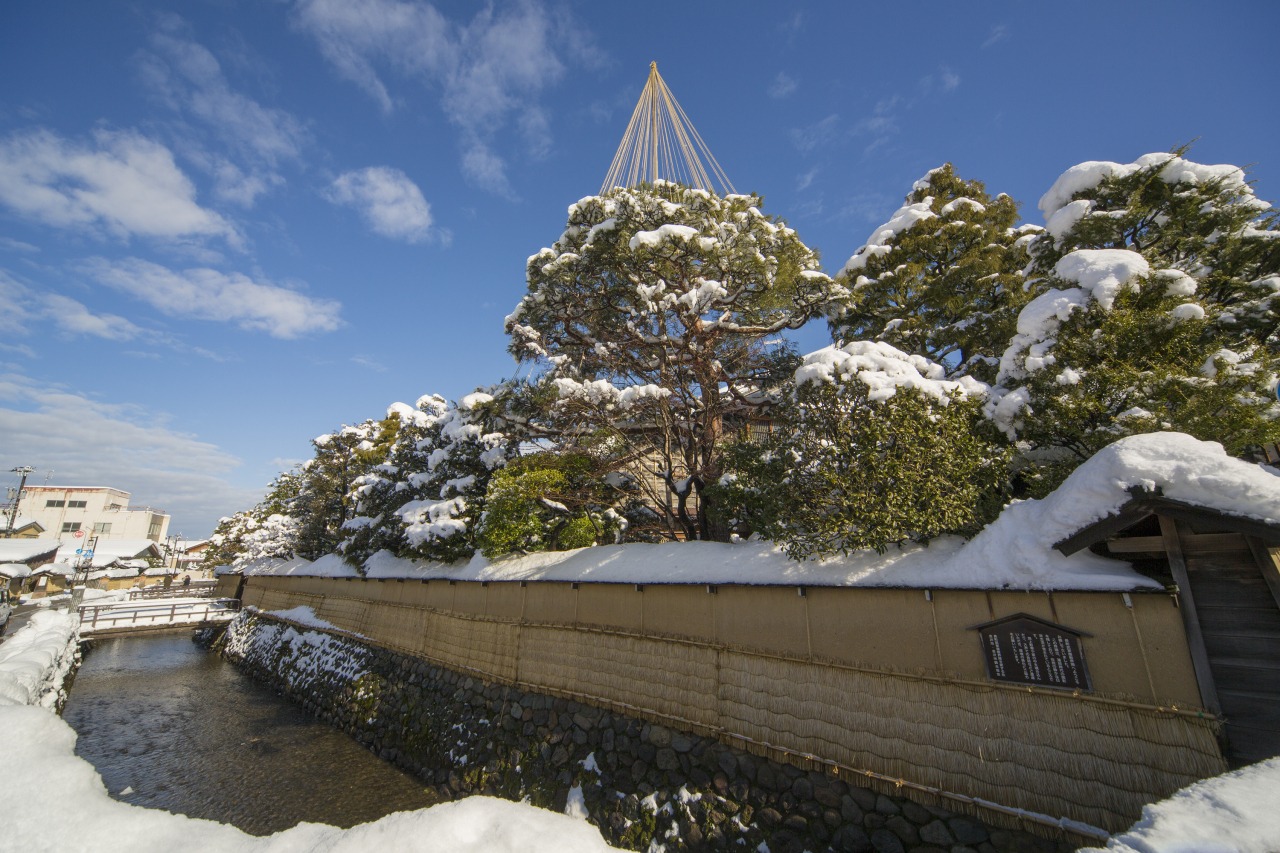
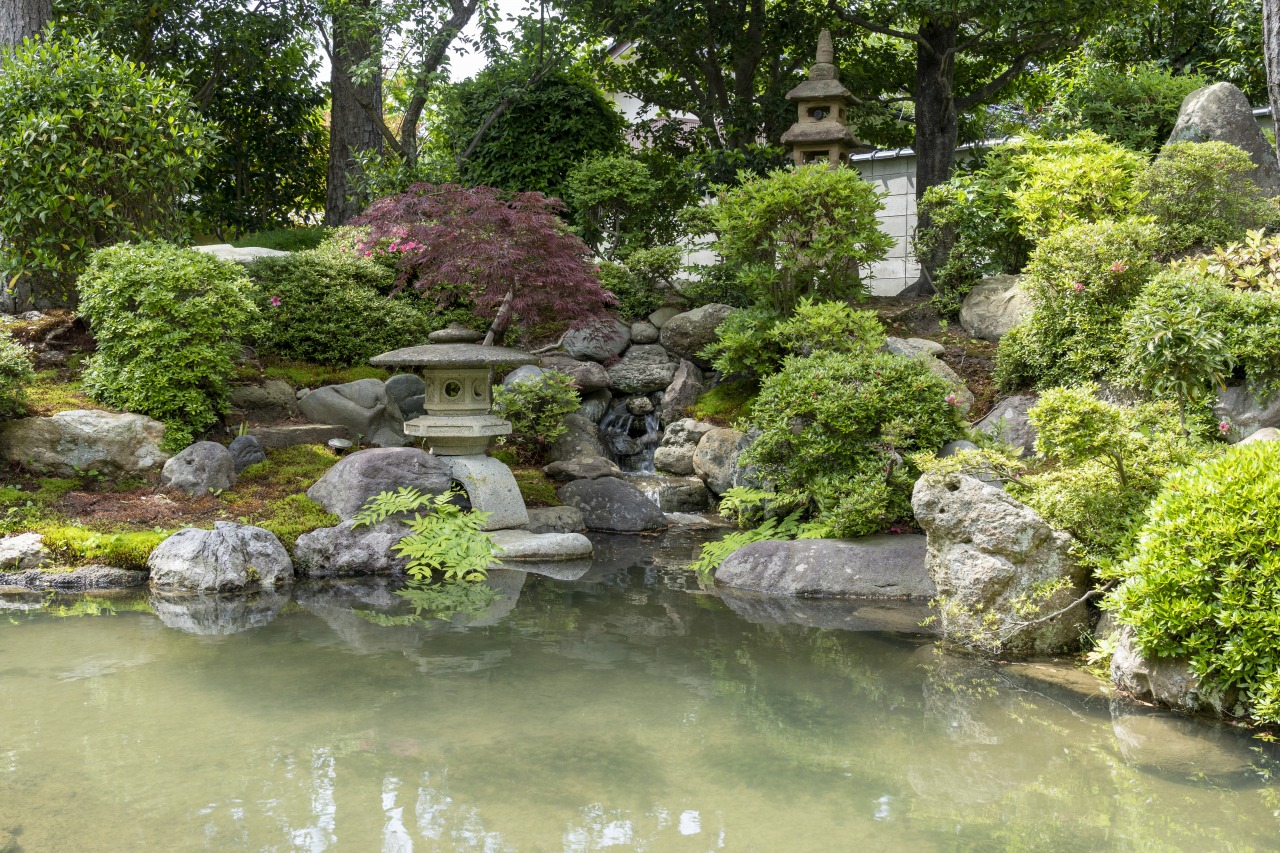
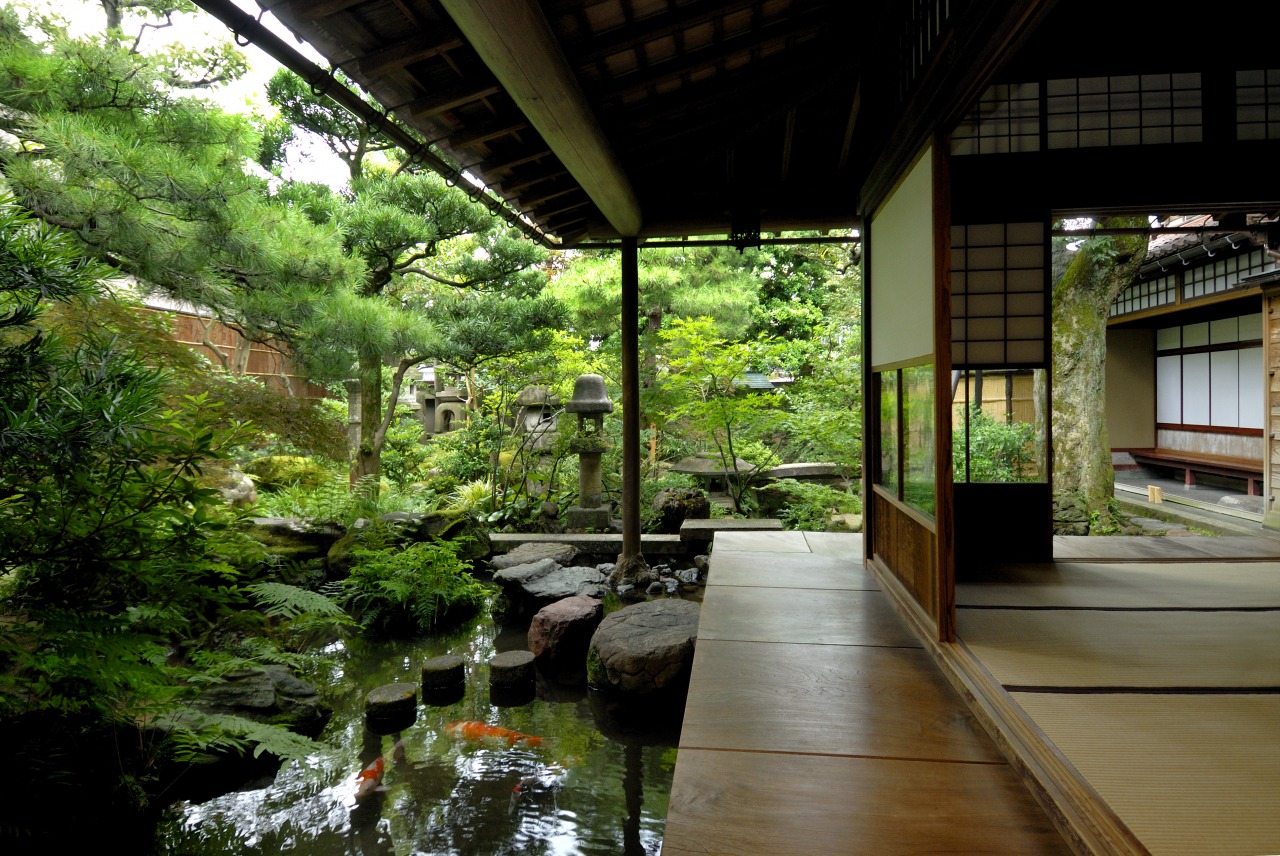
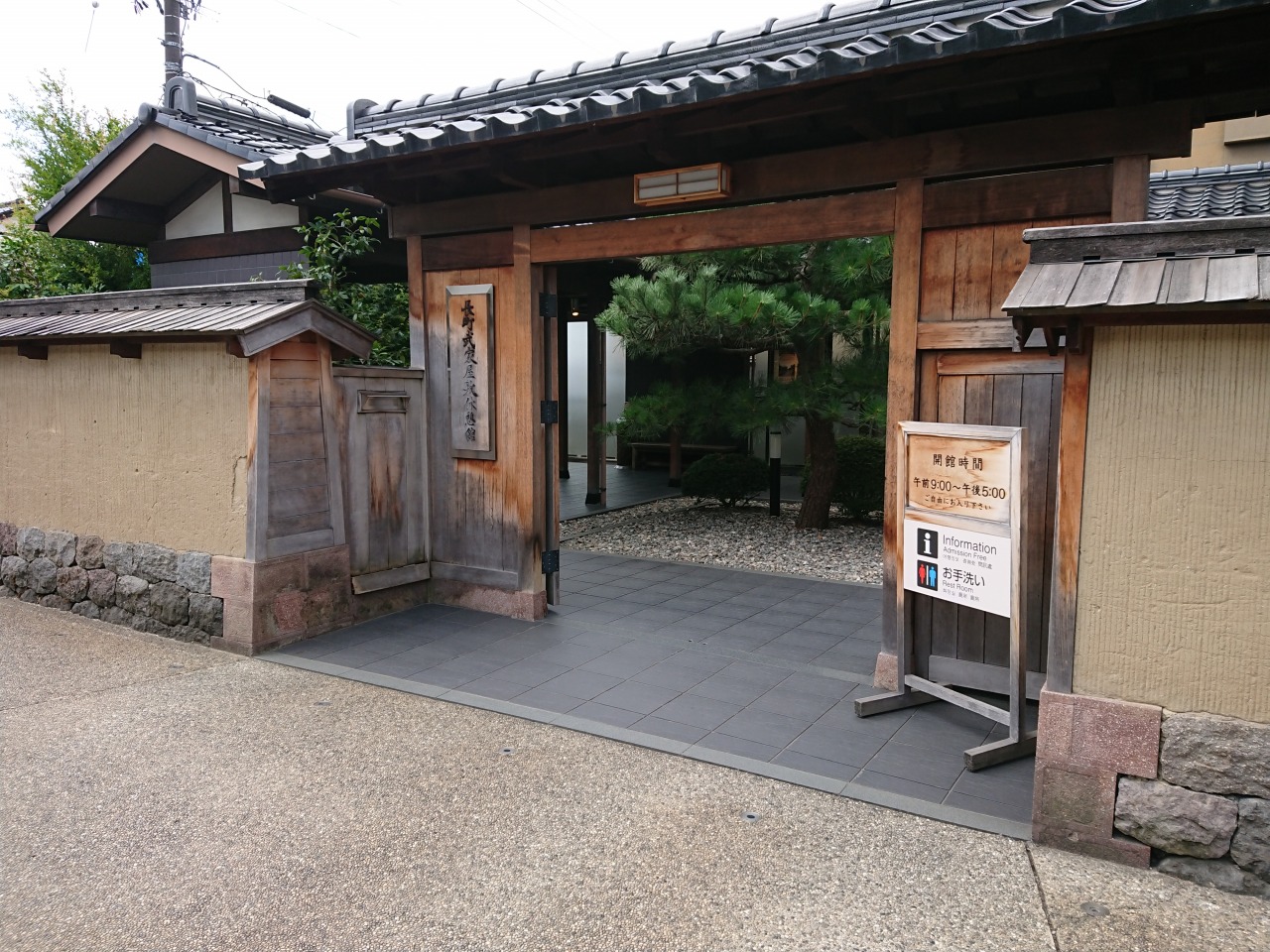
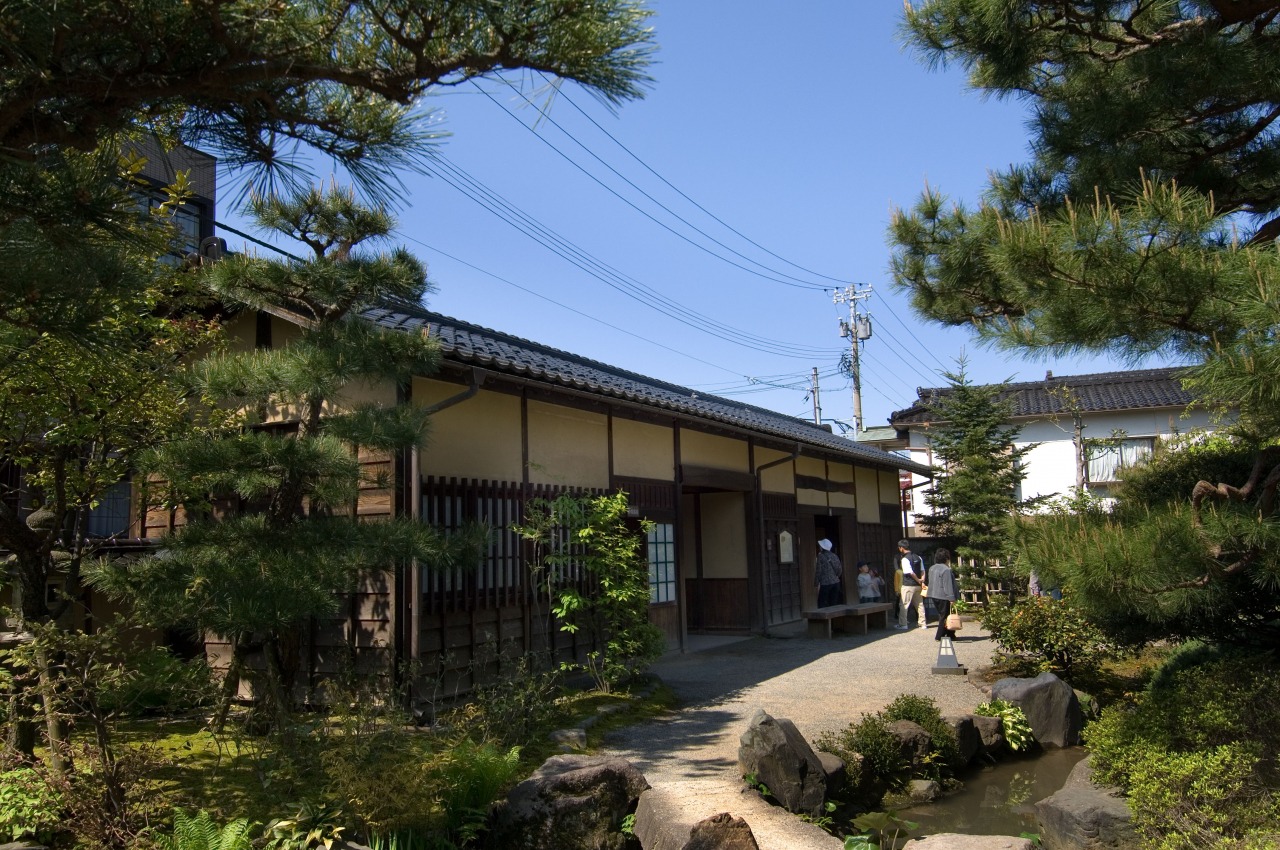
![Incredibly fun art of “mizuhiki”! [Making an envelope]](/lsc/upfile/plan/0000/0548/548_2_l.jpg)
![Incredibly fun art of “mizuhiki”! [making a Message Card]](/lsc/upfile/plan/0000/0547/547_2_l.jpg)
![Incredibly fun art of “mizuhiki”! [Making a Hashioki]](/lsc/upfile/plan/0000/0546/546_1_l.jpg)
![Incredibly fun art of “mizuhiki”! [Making a Shimenawa]](/lsc/upfile/plan/0000/0545/545_7_l.jpg)
